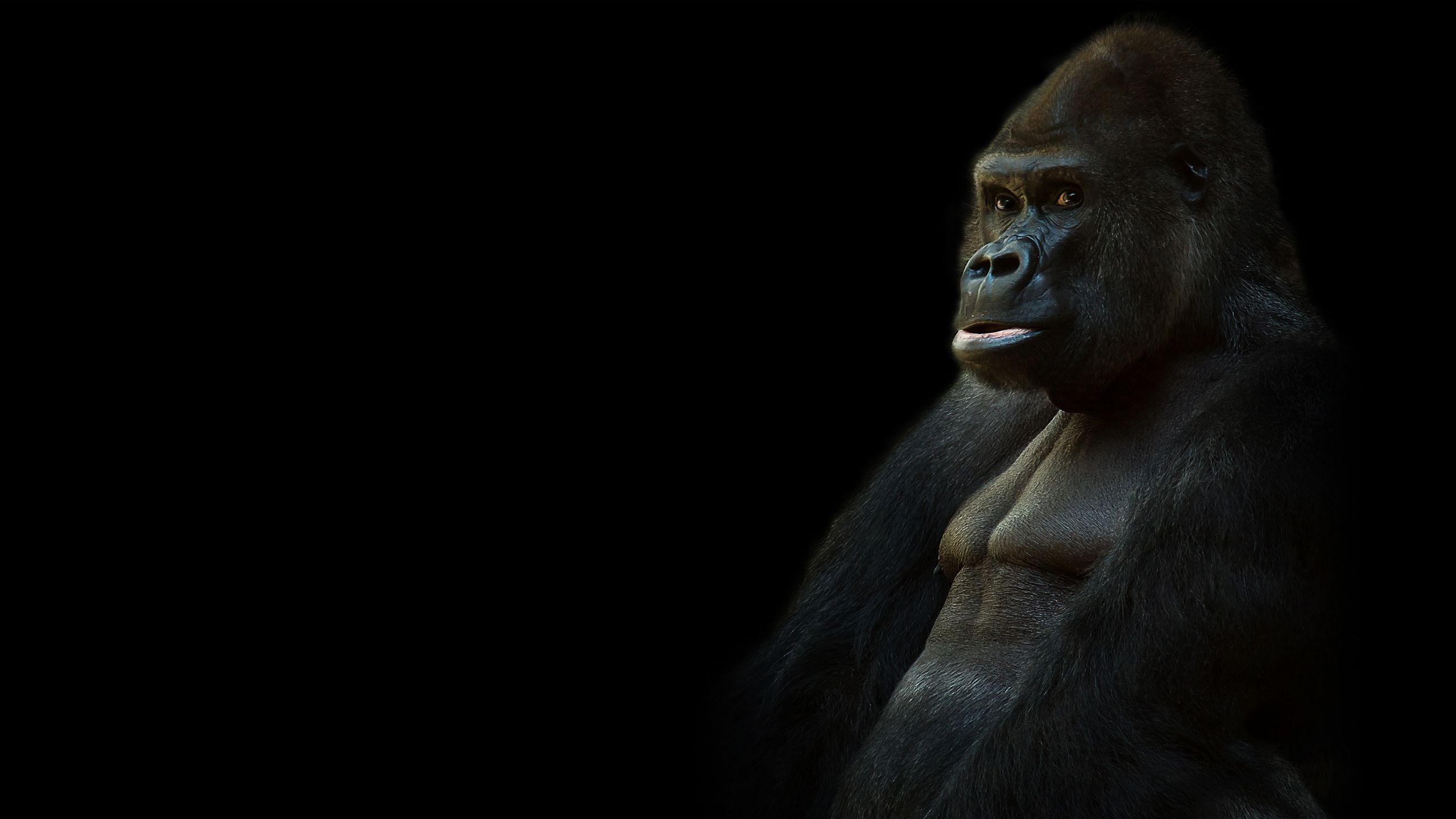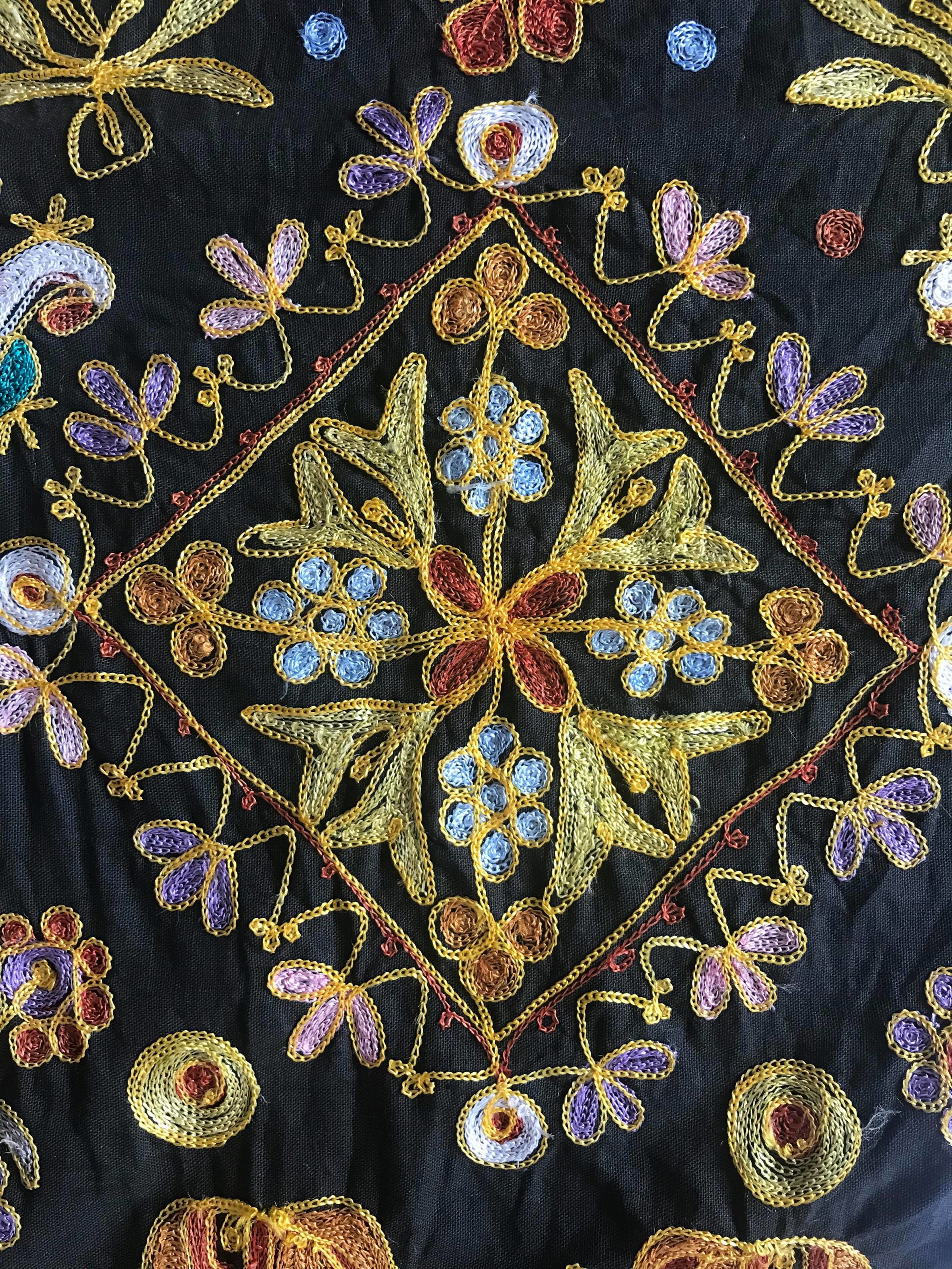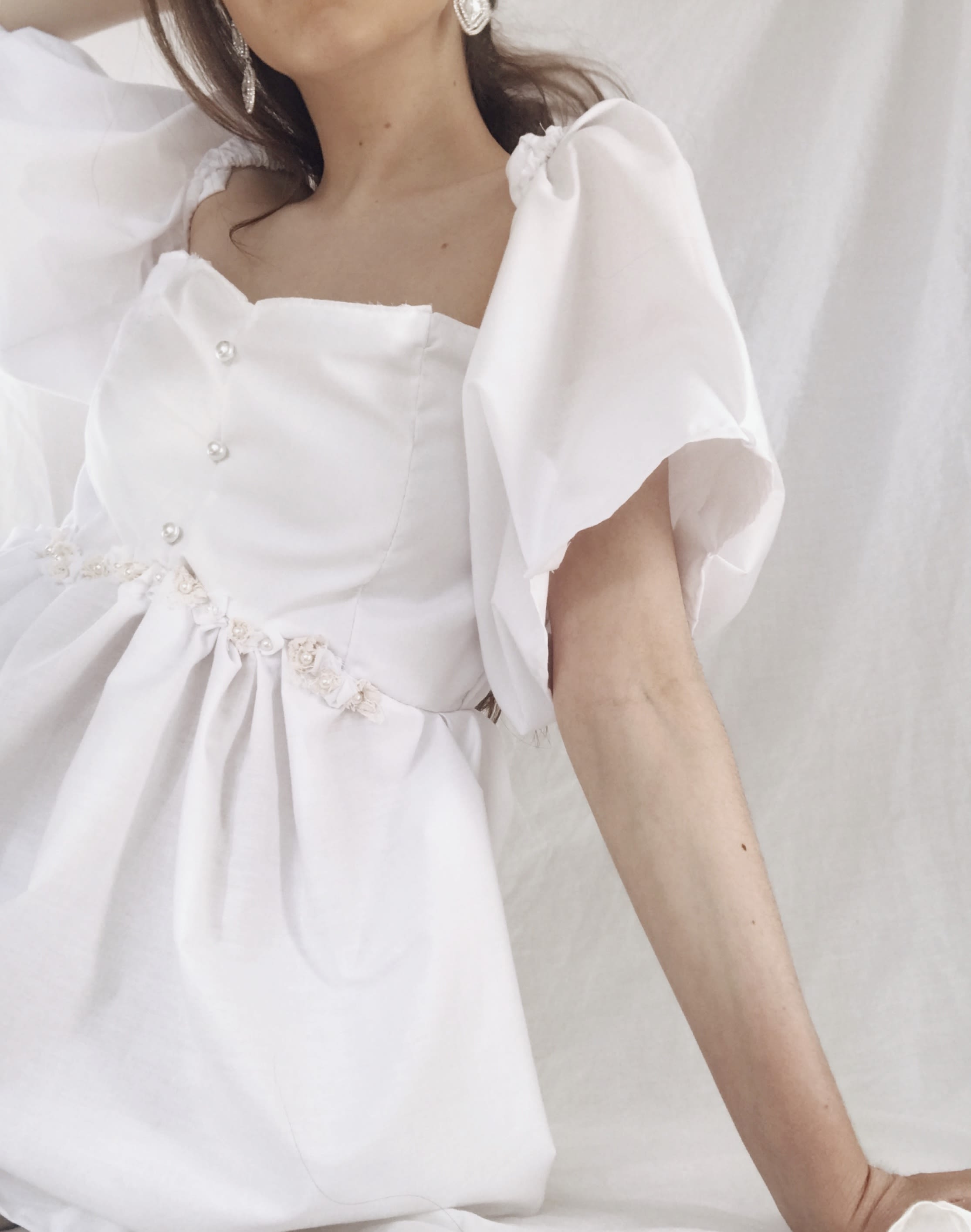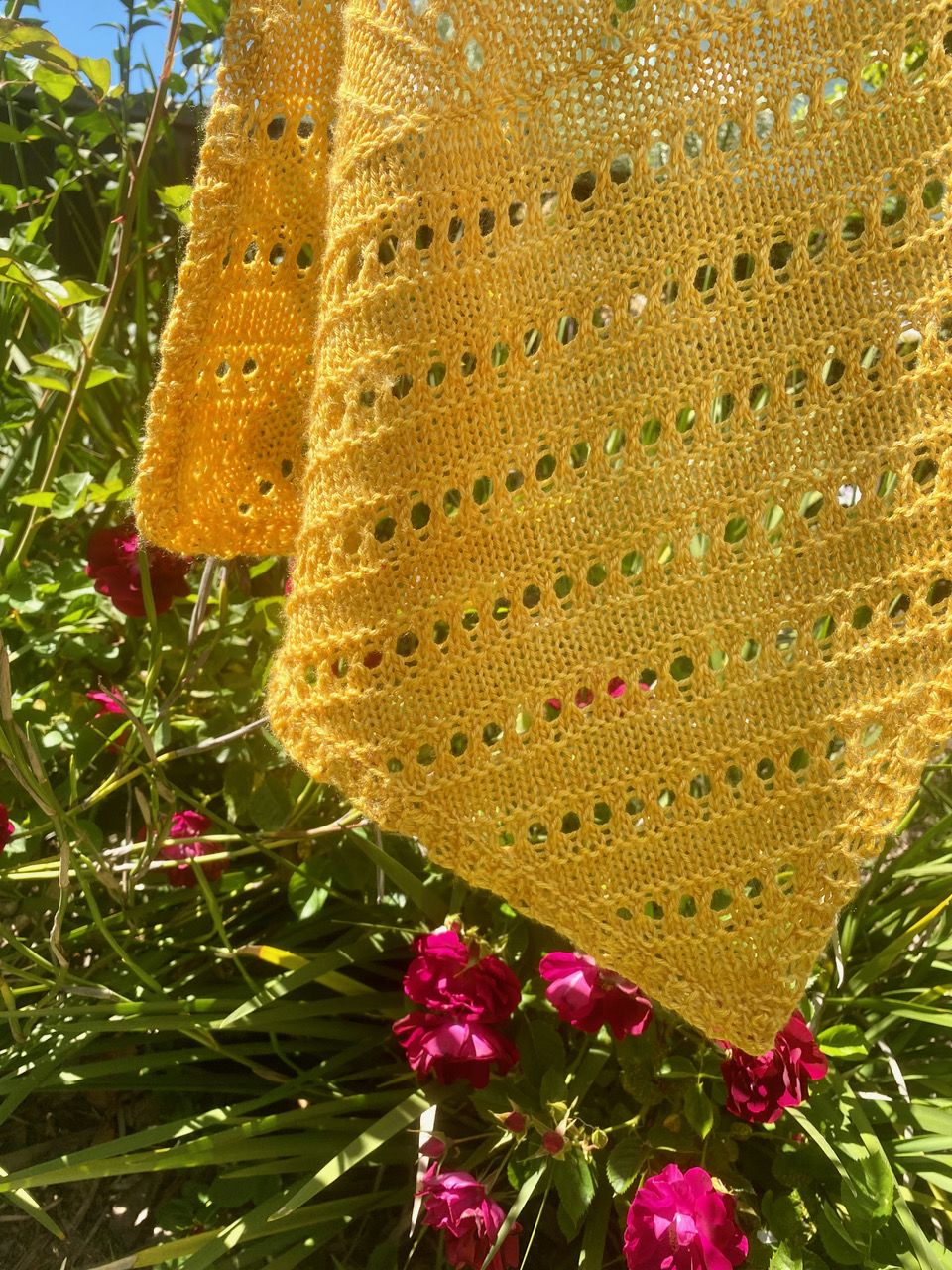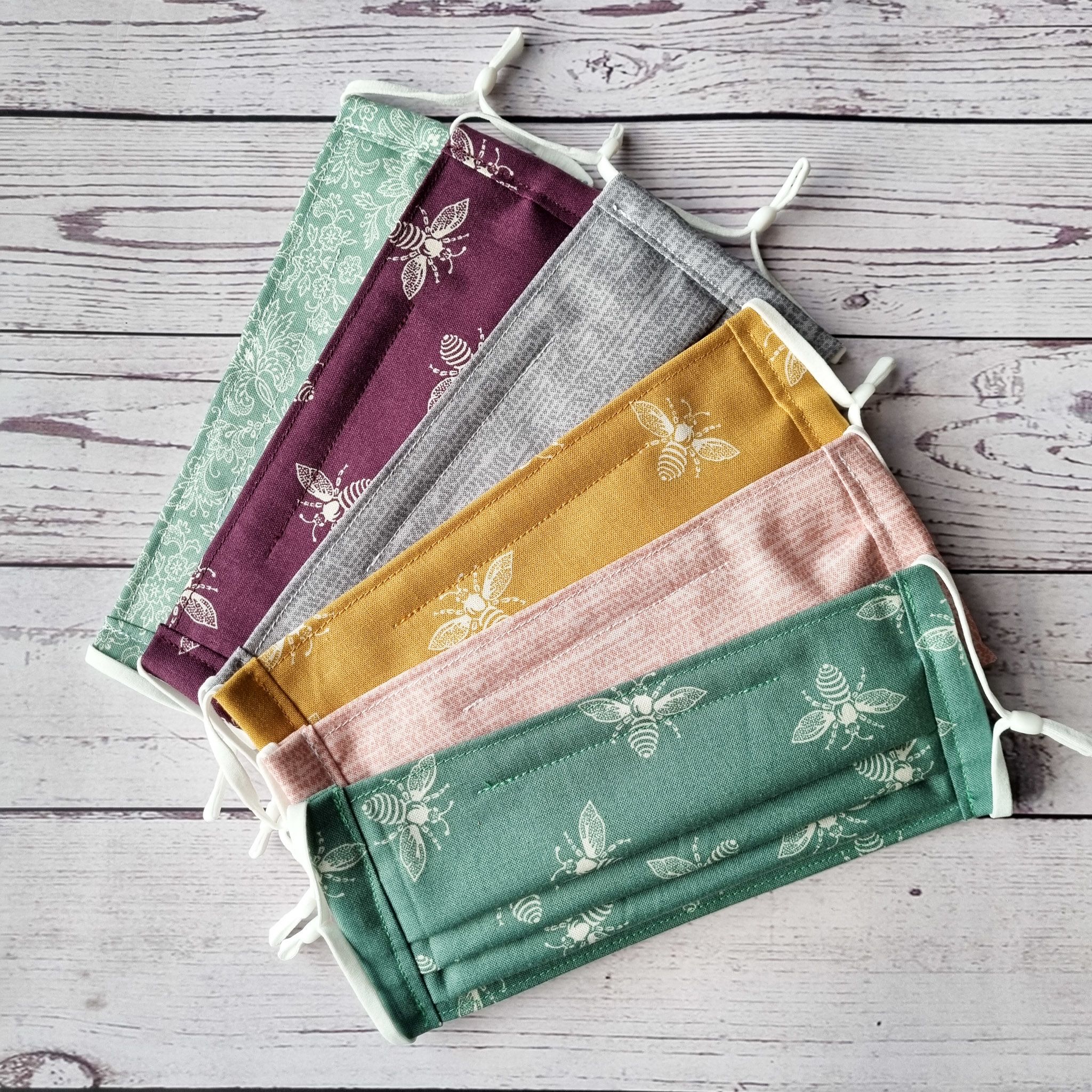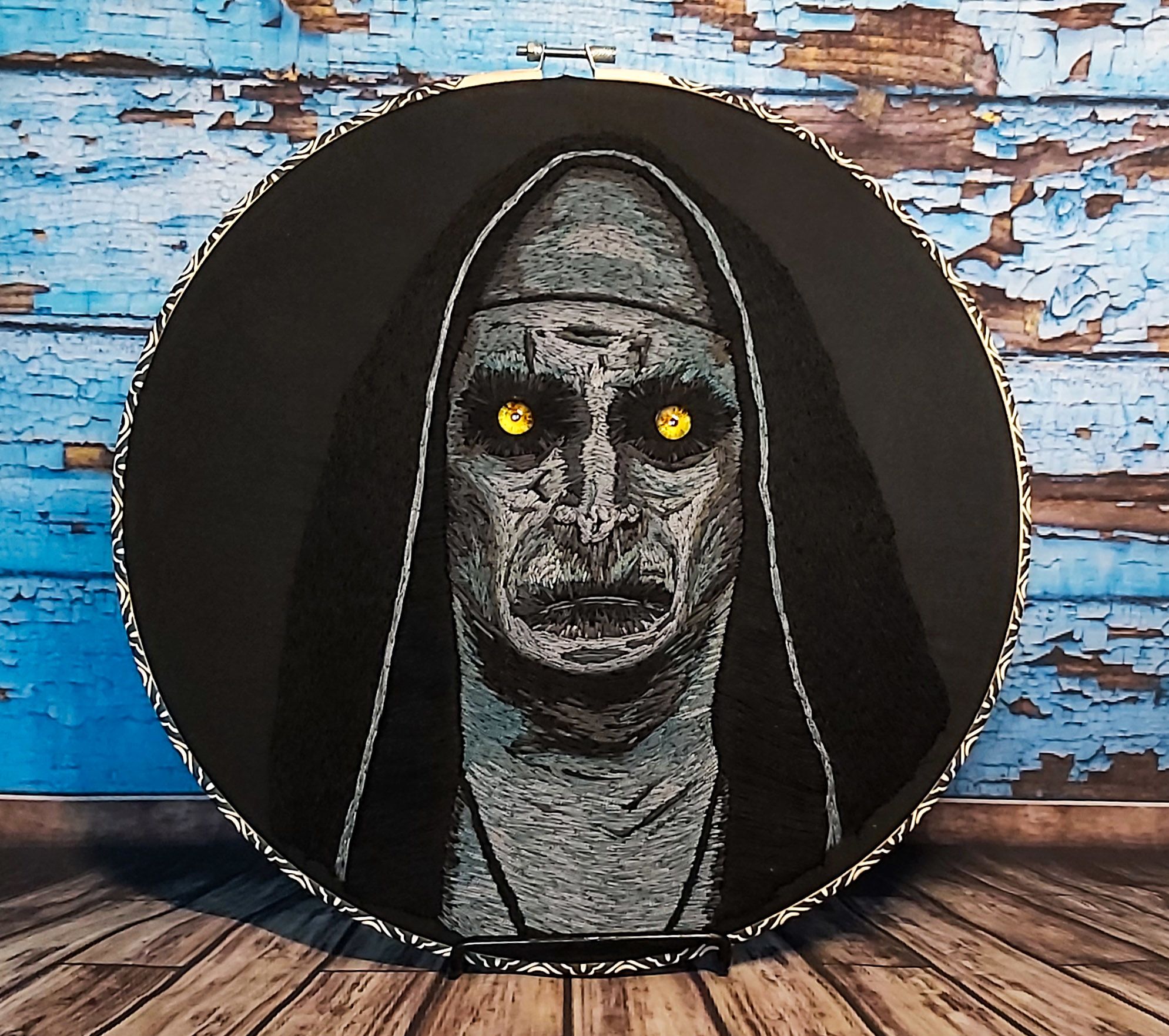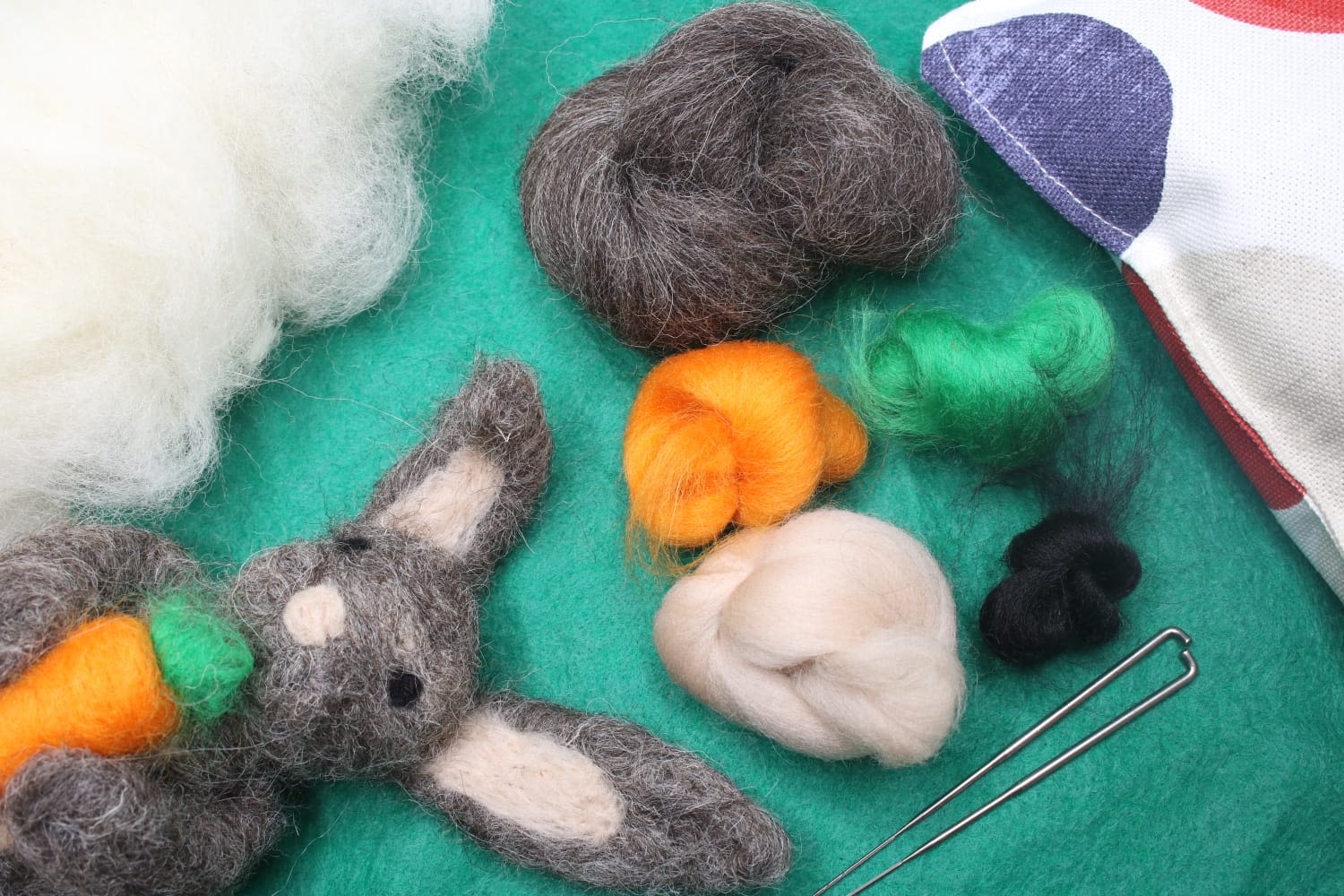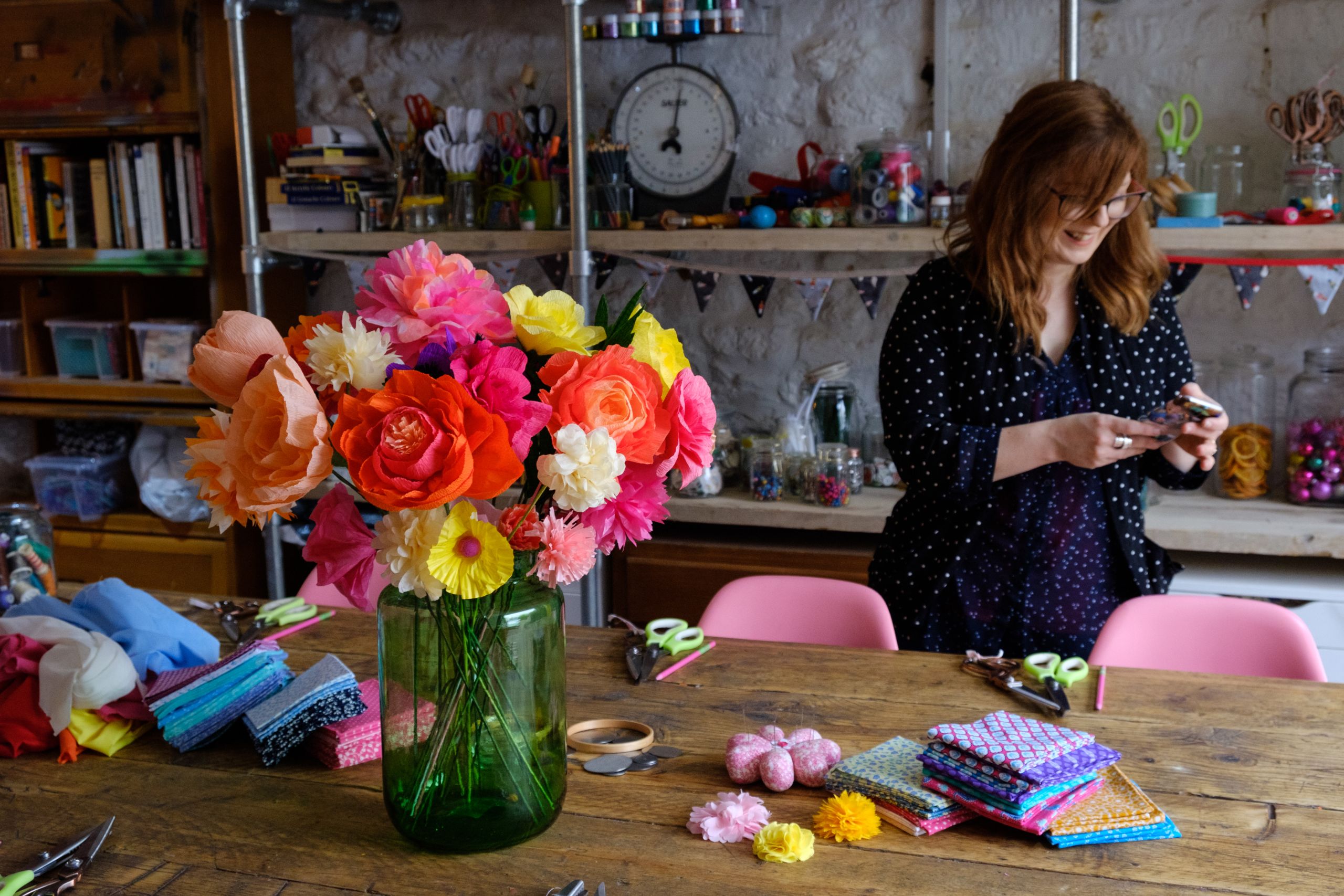Crafting a business over lockdown
The pandemic gave many a chance to ditch the office 9-5 and get crafty and creative with new businesses.
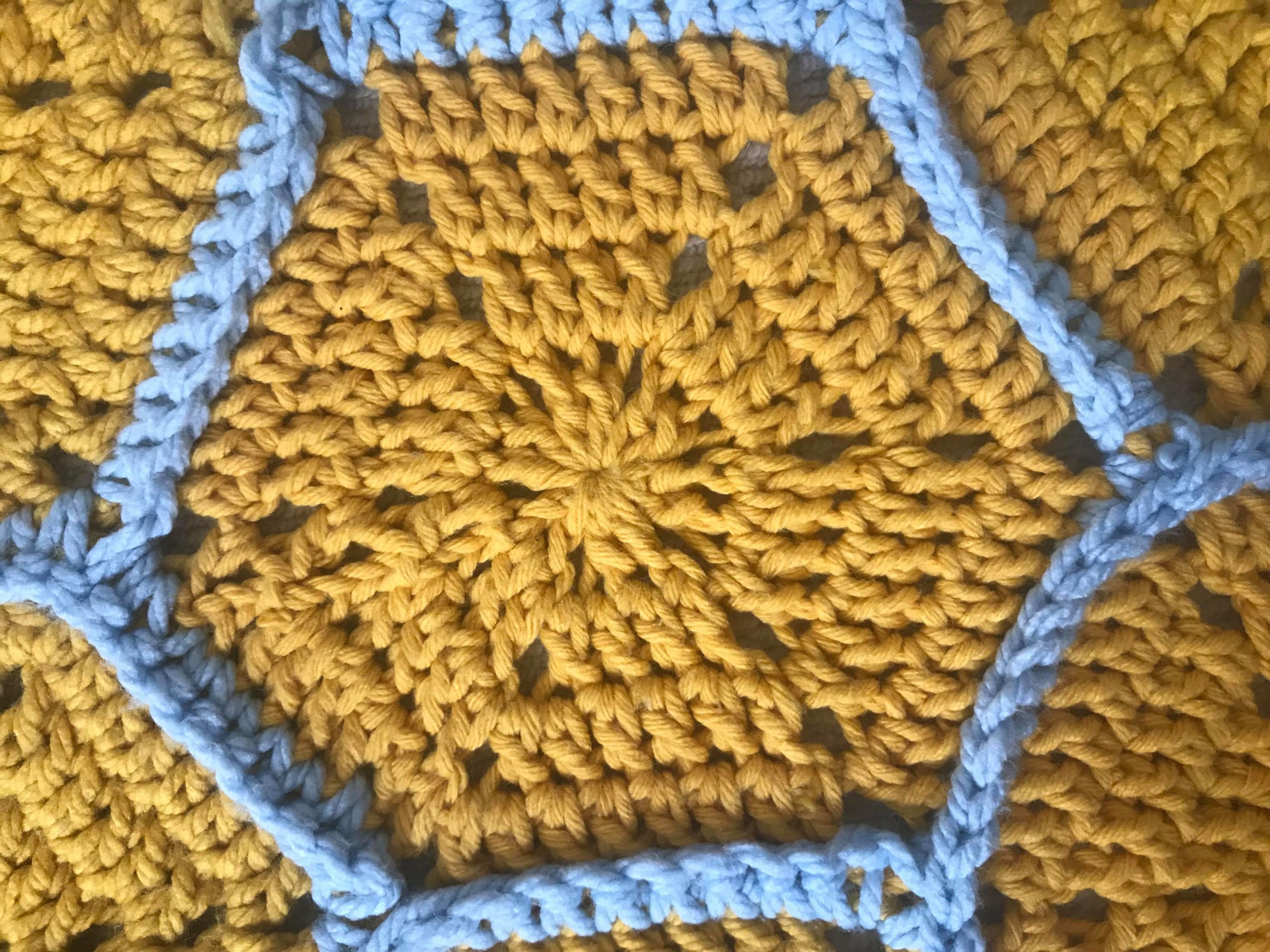
As the world changed and we went through various stages of lockdowns and re-openings, many people newly working from home, on furlough, made redundant or just looking for a welcome distraction, rediscovered new domestic hobbies from baking banana bread and sourdough, to gardening.
Lockdown for many was both a blessing and a curse; a chance to slow down and reflect but a challenging time for businesses, suppliers and people working in uncertainty.
One industry that experienced a huge pandemic popularity boom was crafting; from knitting to macrame, crochet to painting.
Previously seen as an old-fashioned feminine pastime, "granny chic" is all the rage with millenials and "sew bros" are breaking the stereotypes and picking up the knitting needles.
Since the first lockdown was put in place in the UK on March 23rd 2020, Google Trends shows consistent interest in hobbies like knitting, sewing and crocheting with spikes around each lockdown when people were spending more time at home.
Tom Daley is the latest figure to have proudly shown off his stitching prowess during the Tokyo Olympics.
He credits learning to knit and crochet with "keeping him sane" throughout this last year and his dedicated Instagram page @madewithlovebytomdaley now has 1.4 million followers.
And he is not the only crafting celebrity gaining praise; George Clooney and David Beckham sew clothes for their family, Greta Thurnberg does cross-stitch and Stacey Solomon has undertaken many crafting projects during lockdown.
This crafting boom is backed upby UK's largest arts and crafts seller, Hobbycraft, reporting its e-commerce sales increase by more than 150% since 2020 with over one million new customers.
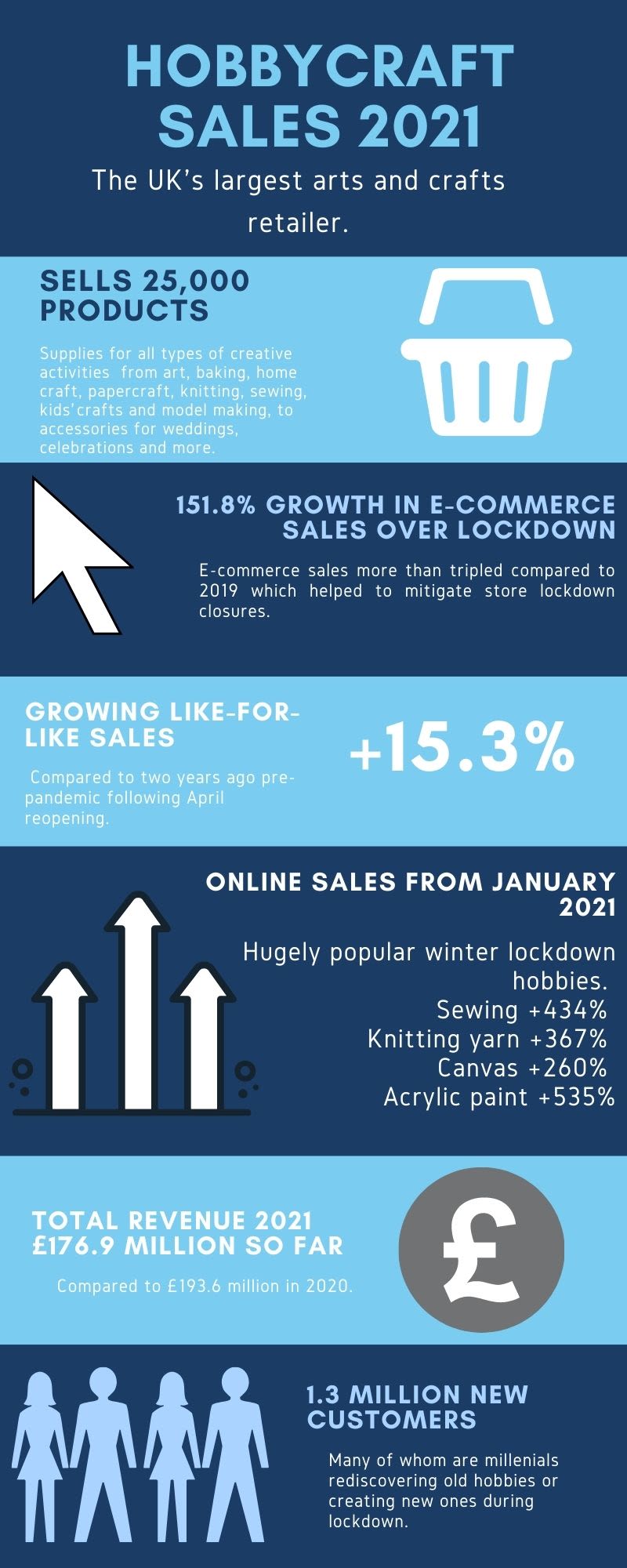
Etsy's Seller Census for 2020 also found a new group of hobbyists turned entrepreneurs who are turning their free time craft into legitimate businesses.
The global online selling platform found that the pandemic played a crucial role in people taking the plunge into setting up an independent business.
Half of all sellers surveyed said financial challenges prompted them to start their creative businesses.
The three main factors were loss of employment (8%), inability to find new work (16%) and inability to work as they were caring for a family member 7%).
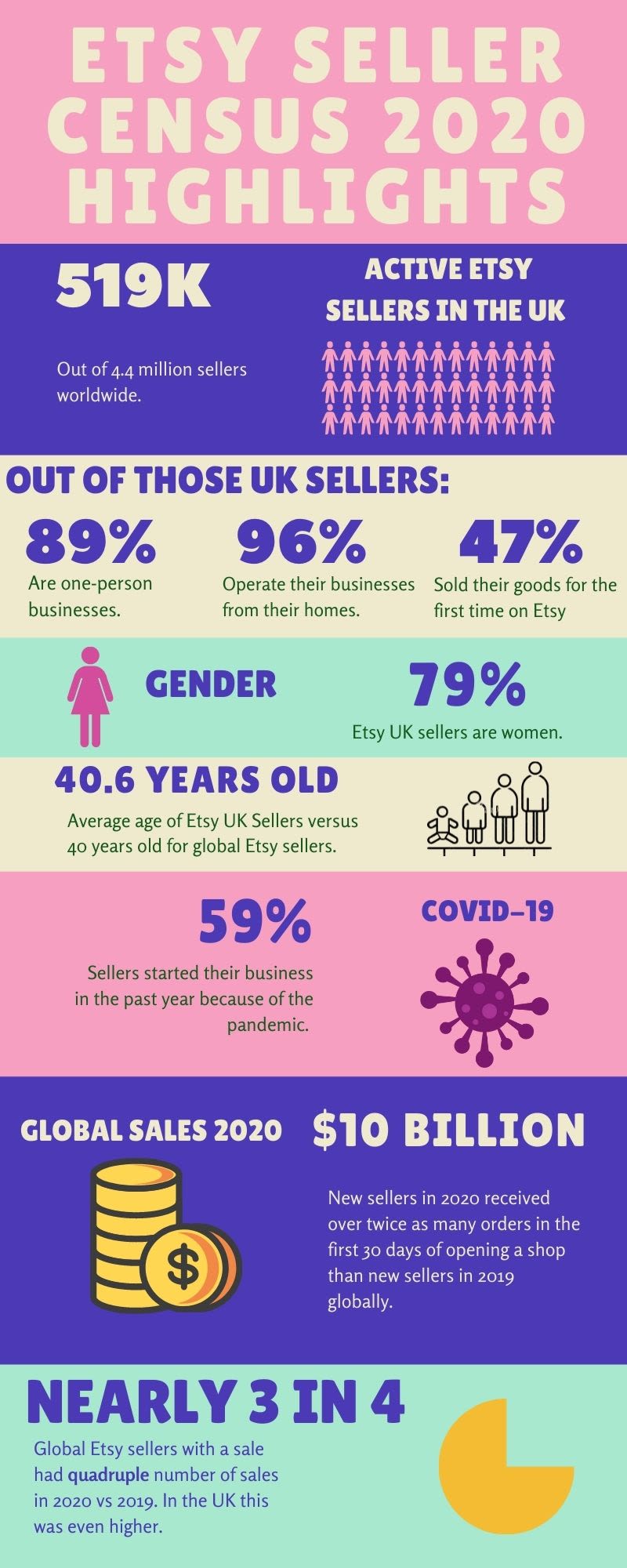
The Times has its own established podcast about women turning their side hustle into legitimate businesses, sometimes multimillion pound empires.
South West Londoner spoke to six women who have turned their crafting hobbies and passions into successful businesses.
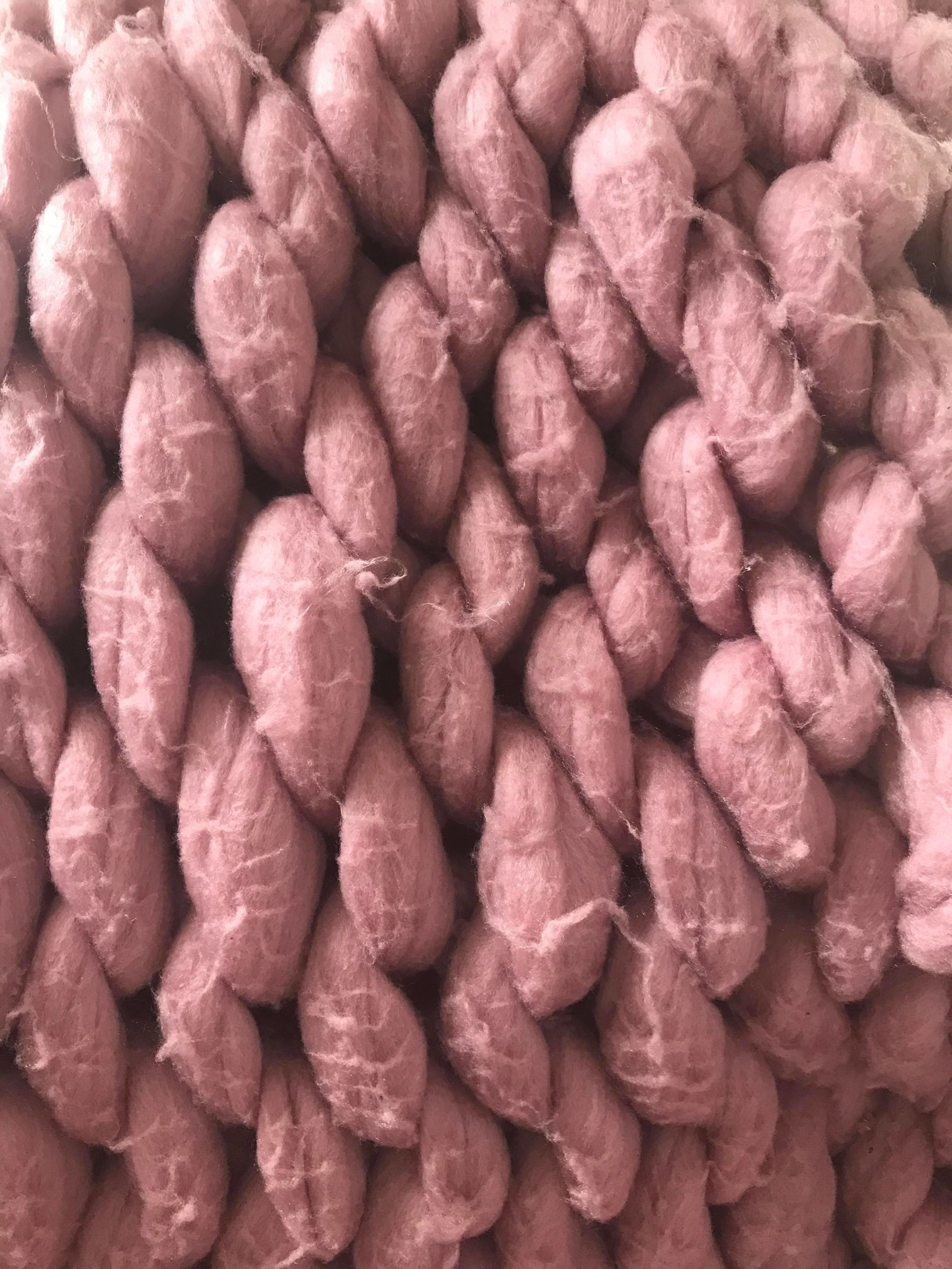
From not knowing how to sew and never touching a sewing machine, to creating and selling a handmade fashion line selling internationally over lockdown, Frances created her own luxury fashion company, Pretty Affluent, at just 20 years old.
She told SWL: "My childhood dream was to always become a fashion designer and to have my own brand. I can even remember at 10 years old I was Googling clothing manufacturers in London as I was so desperate to have my own business even then."
Last year she was inspired by her favourite designer Nadine Merabi to start sewing her own clothes and pursue her fashion design dreams by buying herself a sewing machine to start making her own collection during lockdown.
She said: "I decided to go for it but had no clue where to begin. I set up my Instagram page and shared everything I was making. It took so long to create a capsule Autumn collection."
Frances worked hard on her designs for her collection; their concept, their marketing and their execution on her sewing machine but on her launch day she made no sales.
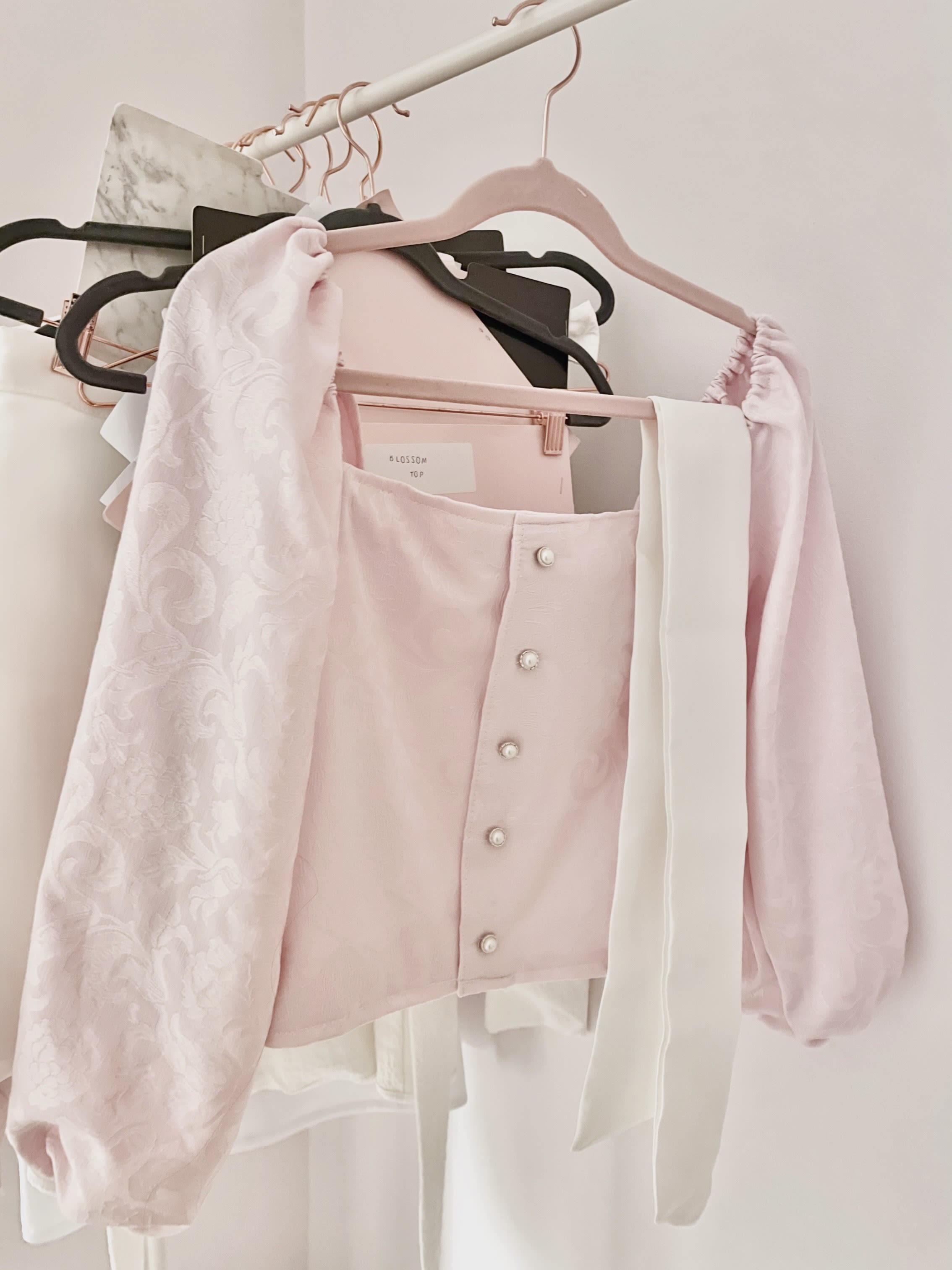
"I did feel like giving up as I thought no one was interested, but I kept going as I never give up."
Frances persevered with a new collection and got in touch with a UK manufacturer to help with producing her designs.
In February 2021 she launched her ready to wear collection and made her first sale.
"My sales began to increase gradually for my ready to wear designs over the following months and this is when I decided to start making the designs again myself," she told SWL.
Ever since then, her handmade items have been her most popular with weekly sales and even requests from abroad in Canada and Switzerland.
Frances highlighted: "I think my story shows the power of never giving up and believing in yourself. Like I said, I have only taught myself how to sew and piece clothes together, rarely ever turning to YouTube."
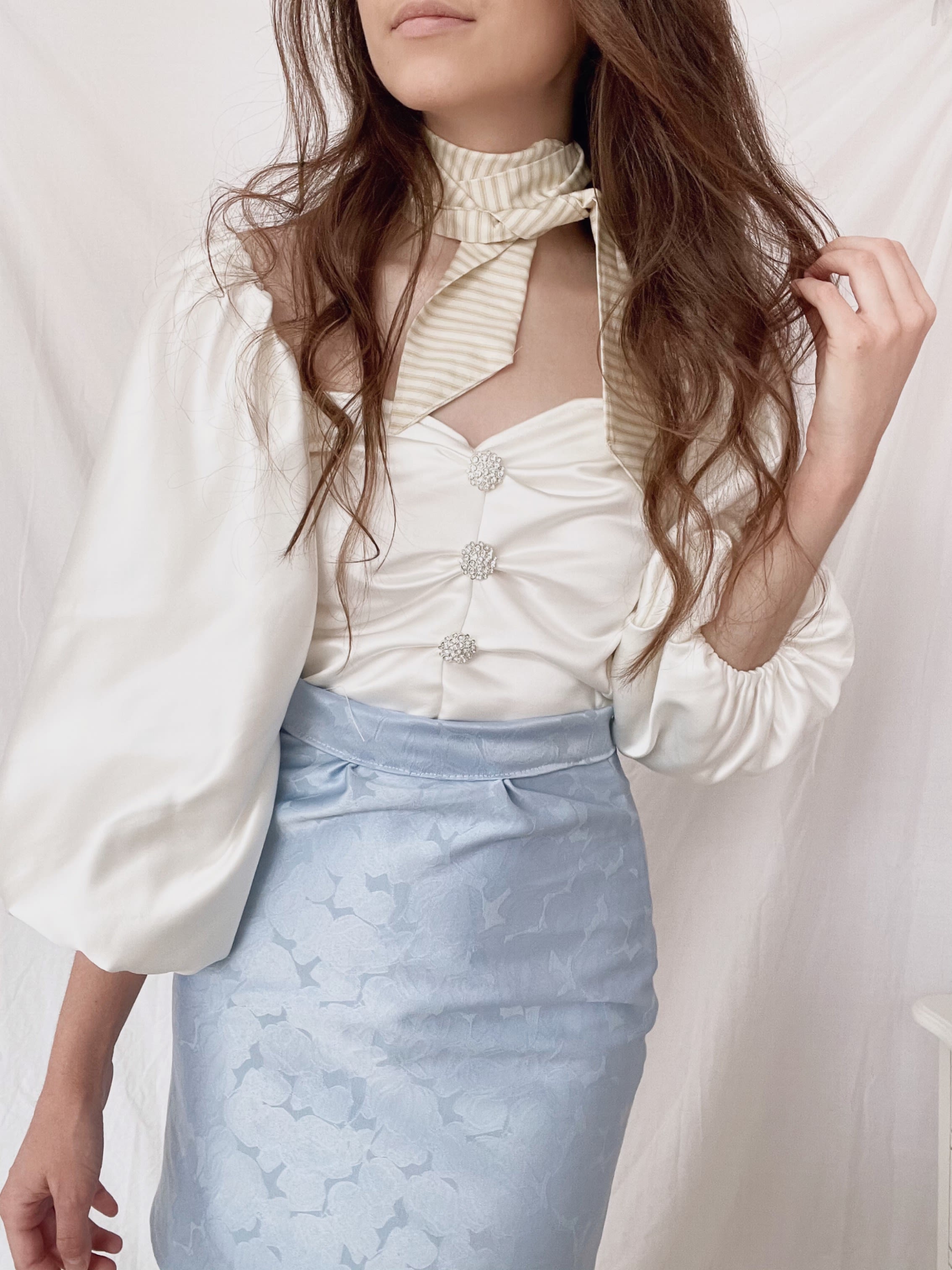
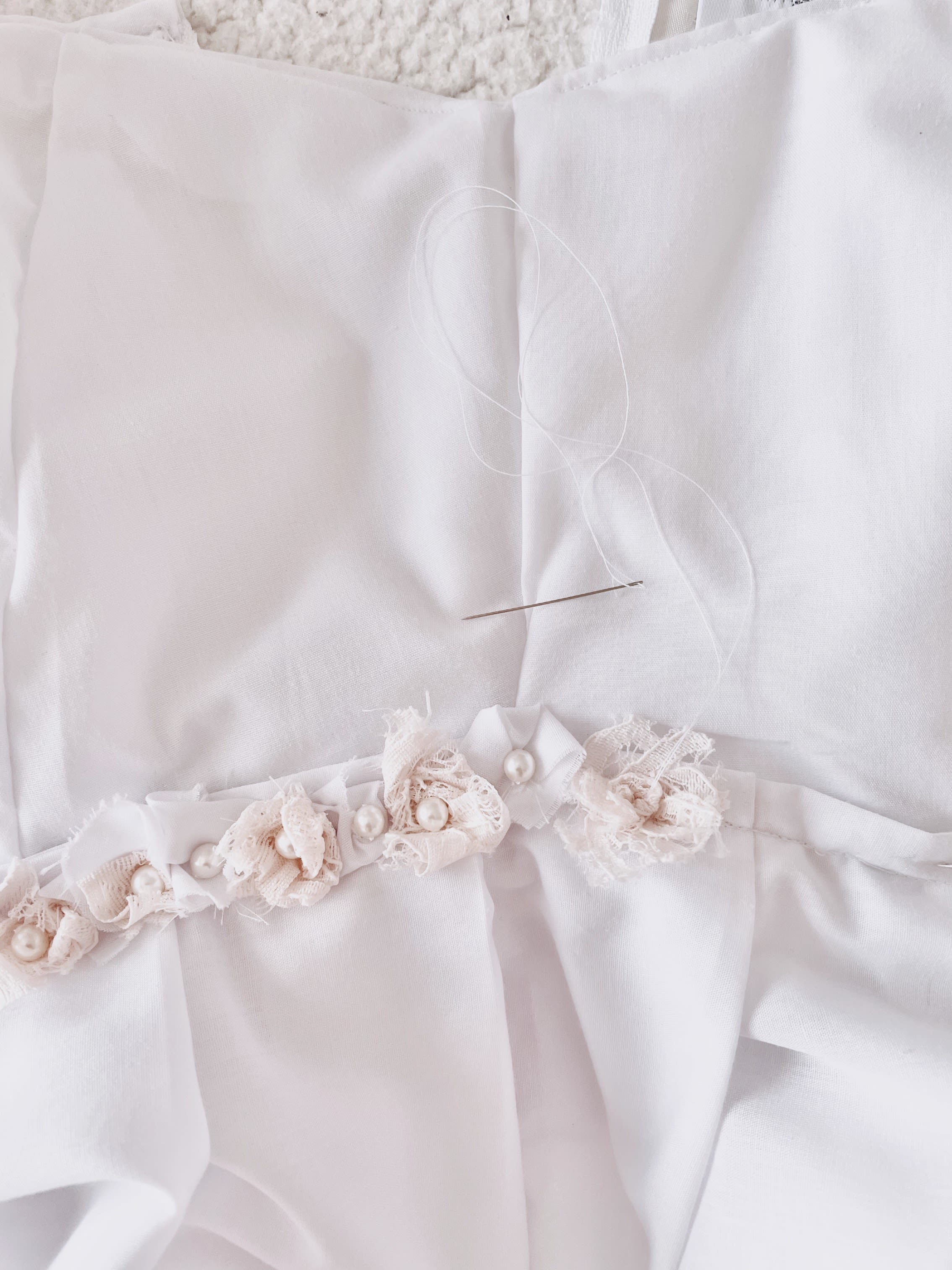
Amy Snell came from a career in marketing to set up her own knitting instructing and designing business, Devious Knitter, which has gone from strength to strength over lockdown with online classes and video podcasts to connect with the virtual knitting community.
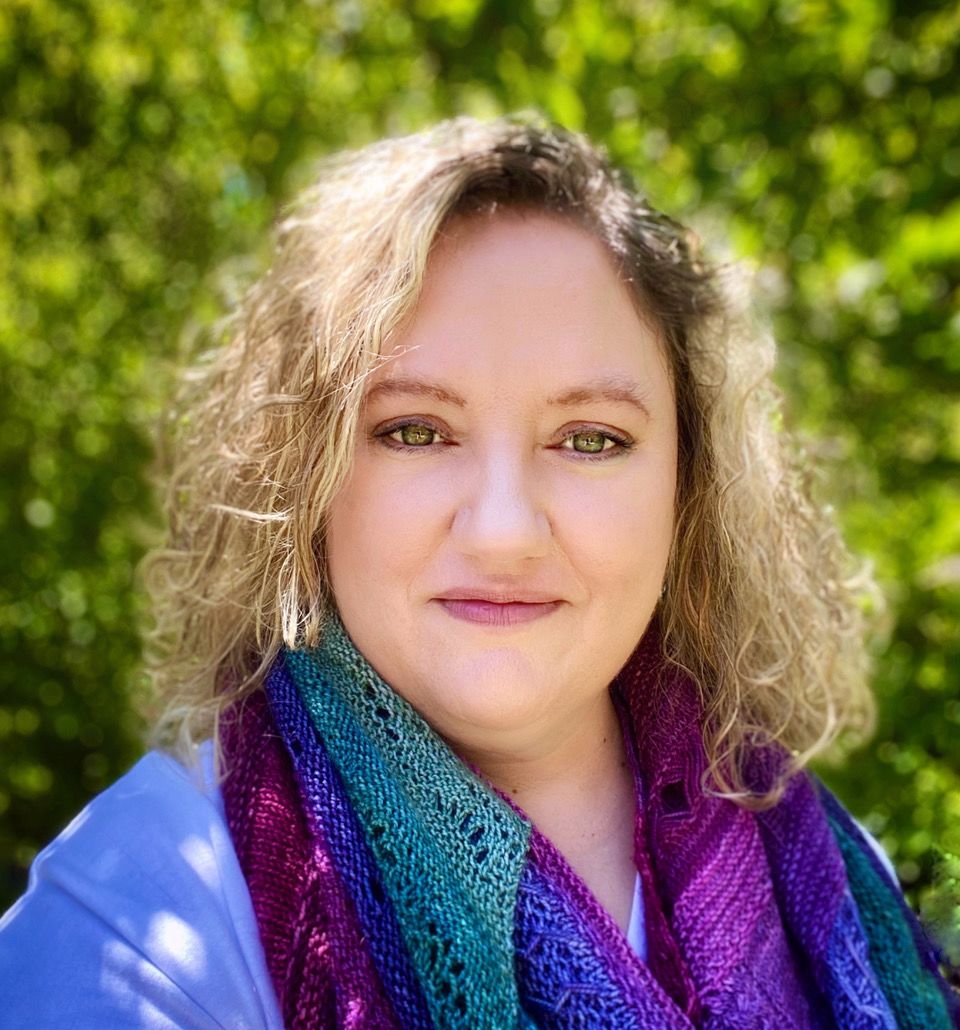
Amy told SWL: "Knitting has occupied various places in my life at different stages. When I was a young mother and often felt isolated, I started reading knitting blogs and knitting bulletin boards, partially to learn and become better at my craft, but also as a means of connection to a wider world of people who also liked the things I liked."
"The virtual knitting world started to feel like home to me."
One of the many things Amy loves about knitting is how tactile and colourful it is; different textures and styles of yarn and an array of colours lend themselves to different projects and she compares it to drawing or painting with thread.
Her friend who originally showed her how to knit likes to joke that she "infected" Amy with knitting.
Amy went from teaching this friend and her own children some new stitching skills, to running knitting clubs at schools teaching parents and children to knit and volunteering in the community teaching retirees, secondary school students, work colleagues and anyone else who had an interest in knitting.
She used virtual knit-ins and knit-togethers on Zoom over lockdown to help combat feelings of isolation and found new events and opportunities in the process.
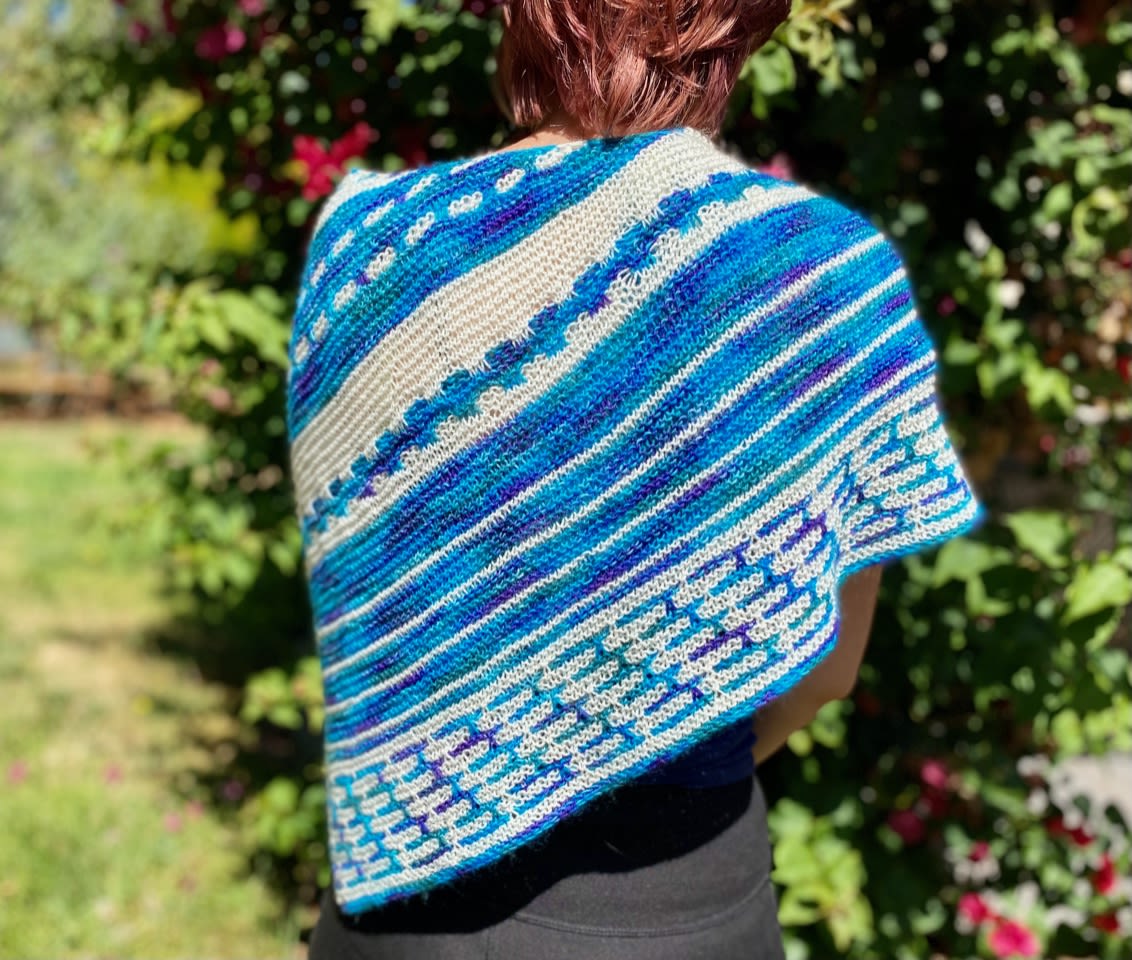
Her career in marketing at the time did not leave her much time to dedicate to a knitting blog or publishing her own knitting designs, but when her youngest son went to college, she started to think about giving it a go.
In the year before the pandemic hit, she went to knitting retreats where she realised that she already knew a lot of what the talented knitting teachers were demonstrating.
"There was a niggling little voice in the back of my head that would once in a while crop up and say, “Maybe you’re good enough at this to be on the other side of the classroom, teaching this stuff for real and getting paid for it.”
She was spurred into action during the early months of the pandemic when a new virtual festival called Fiberworld put out a call for knitting instructors.
Amy found that she really loved it, especially as she was used to presenting on Zoom because of her marketing job and she could combine her knitting-teaching skills and her virtual-presenting skills.
She used multiple cameras so her students could see her hands and created her small business from there which now focusses on teaching and designing new patterns.
She also used her business as a springboard to collaborate with others in the knitting industry, particularly those from Fiber, to start a video podcast Would Knit Be Fun on Youtube. She uses the platform to promote knitting as a skill and help out her fellow knitting businesses.
Of course, there have been challenges along the way: "Like all small businesses, you have to wear so many hats. I had to learn how to build a website, where to host it, how to sell things on it. I have to market that business and keep up a social media presence. I didn’t really know the knitting industry from a businessperson’s perspective, so I had a lot to learn there."
However, the benefits massively outweighed the challenges, as Amy put it: "There have been huge upsides, though. In this time of separation and isolation, launching a business in the knitting industry has brought me new connections and new friends."
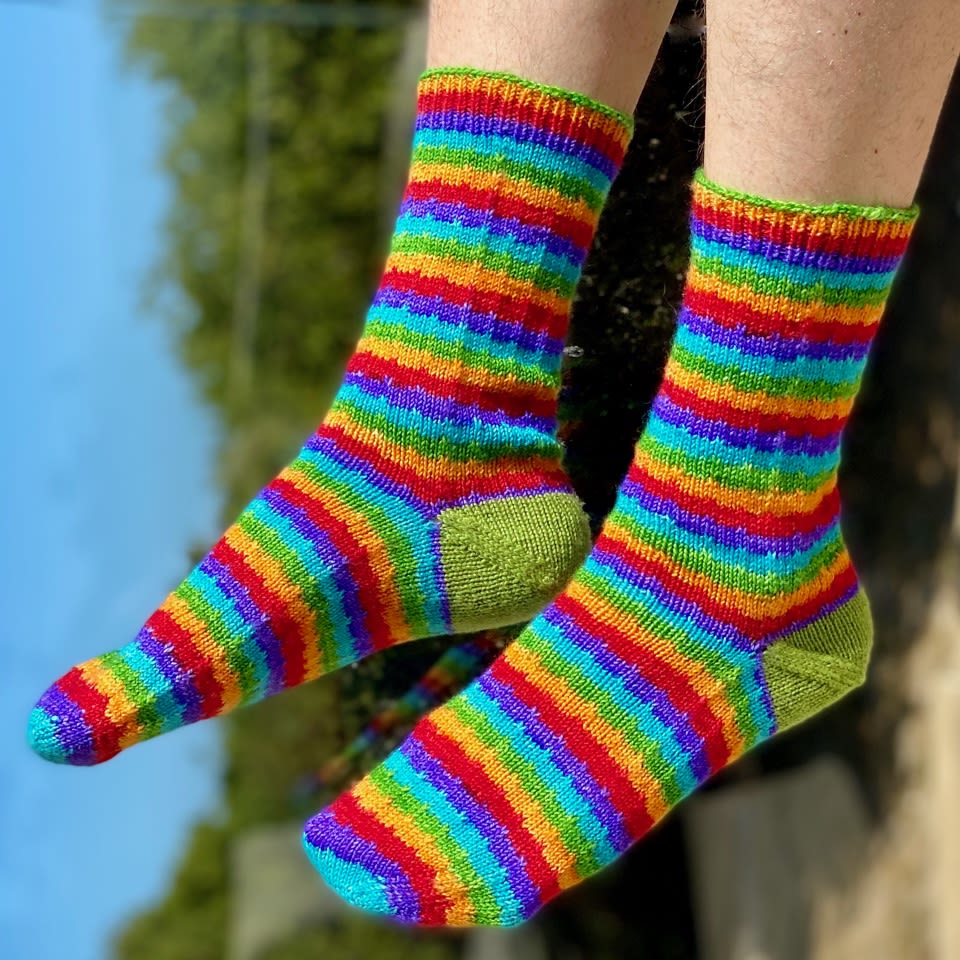
Jenny Kershaw lost her job as a result of the pandemic but took a brave step to launch her own eco-friendly ethical line of products to help reduce plastic waste over lockdown.
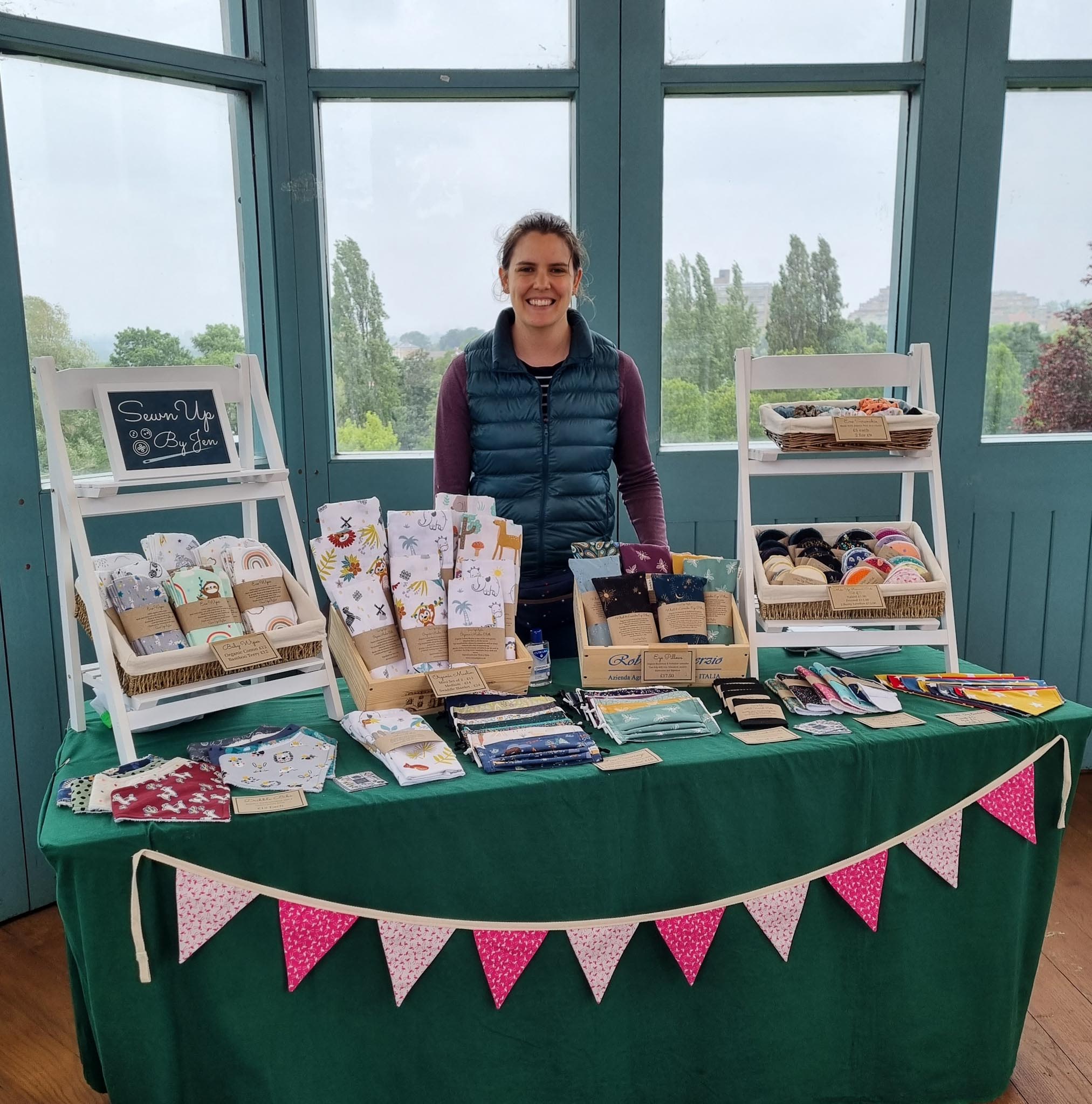
"Craft was something I did to relax, and calm an anxious brain."
Jenny's crafting business journey started with making some facemasks for family and then it quickly took off when more and more people asked to buy them.
Jenny told SWL: "I've dabbled in sewing, knitting, and crochet a little over the years but have never really properly had time to dedicate to it.
"Having lost a number of jobs due to Covid, and suffering with a number of mental health illnesses, crafting became my everything, it gave me focus in a turbulent time and I met a wonderful community of makers online who are very supportive."
From facemasks, Jenny expanded into making and selling other products including make up and nail varnish remover pads, bamboo face cloths, travel soap bags, and particularly items for babies including reusable baby wipes, bamboo dribble bibs and organic muslin swaddles.
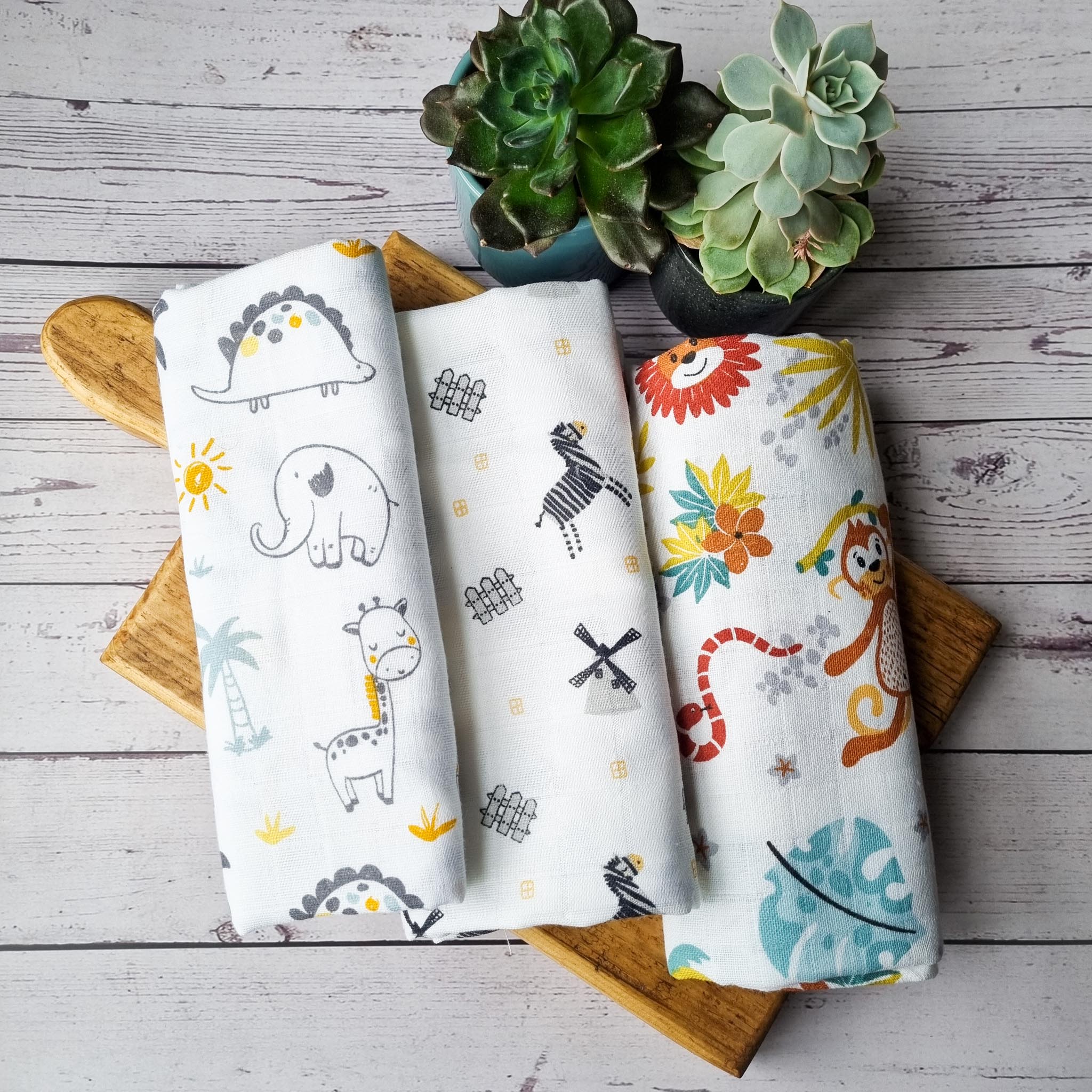
"After a couple of months I started making other things and quickly realised maybe I could do some good by encouraging others to make more sustainable choices."
Jenny realised her crafting could not only help her mental health and her business, but also the environment.
She told SWL: "I've always had a passion for the outdoors and the environment, and have struggled with the amount of single use plastic we all use - I thought maybe I could help with this."
"Sustainability is at the heart of everything I do."
All of her products are reusable, use recycled packaging and she makes a conscious effort to minimise her waste and use suppliers who consider their own environmental footprint.
With the new Climate Emergency Report from The Intergovernmental Panel on Climate Change at the UN this seems more relevant than ever as we look at our every day choices and how we can go greener to protect the planet's future.
She highlighted to me: "I truly believe that we can all make small changes which add up to make a collective difference."
Like other crafty businesswomen that I spoke to, one of the challenges that Jenny faces is being a one-woman show creating her products, doing the accounting, social media, sourcing, promoting, packing and much more solo.
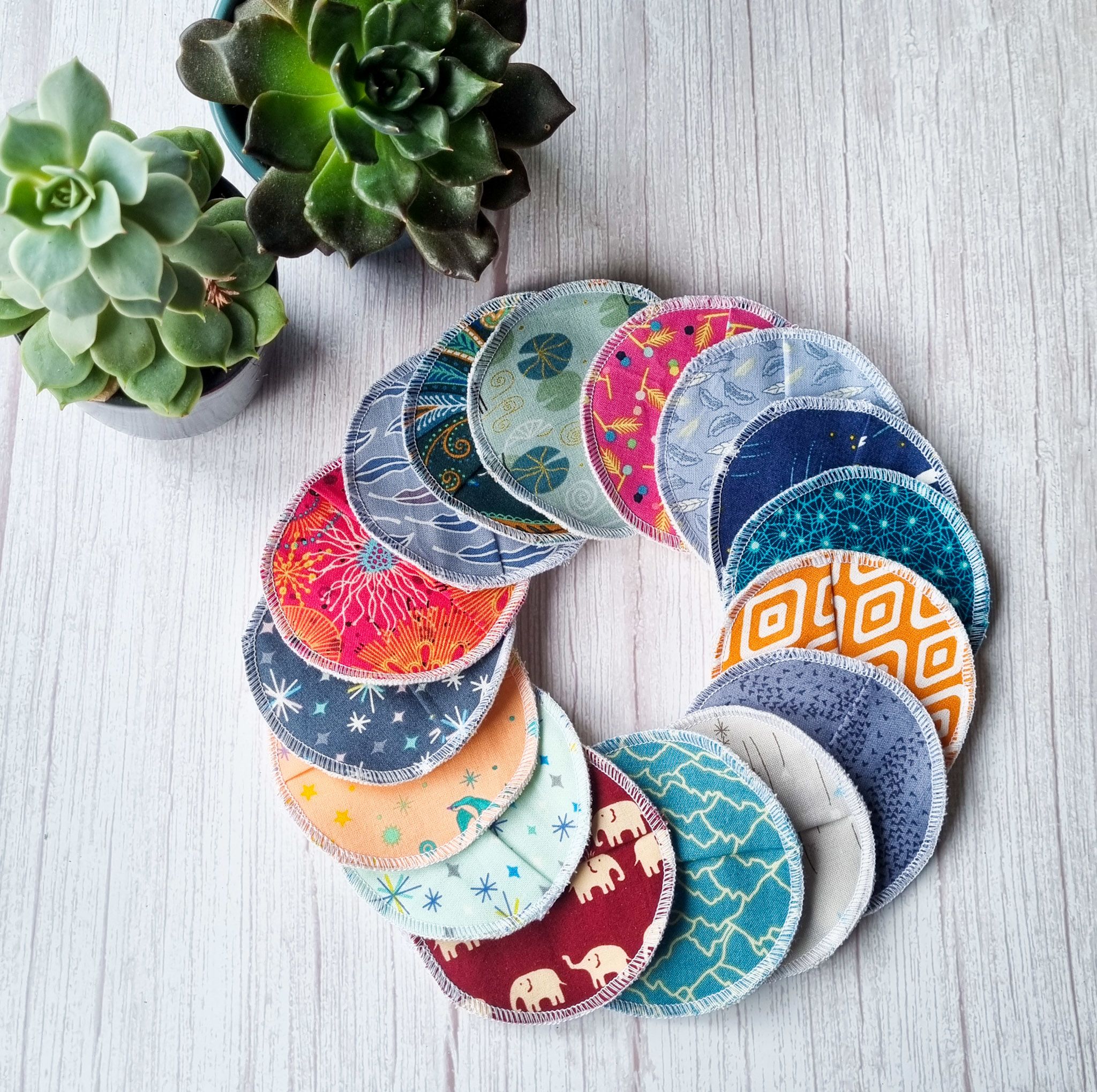
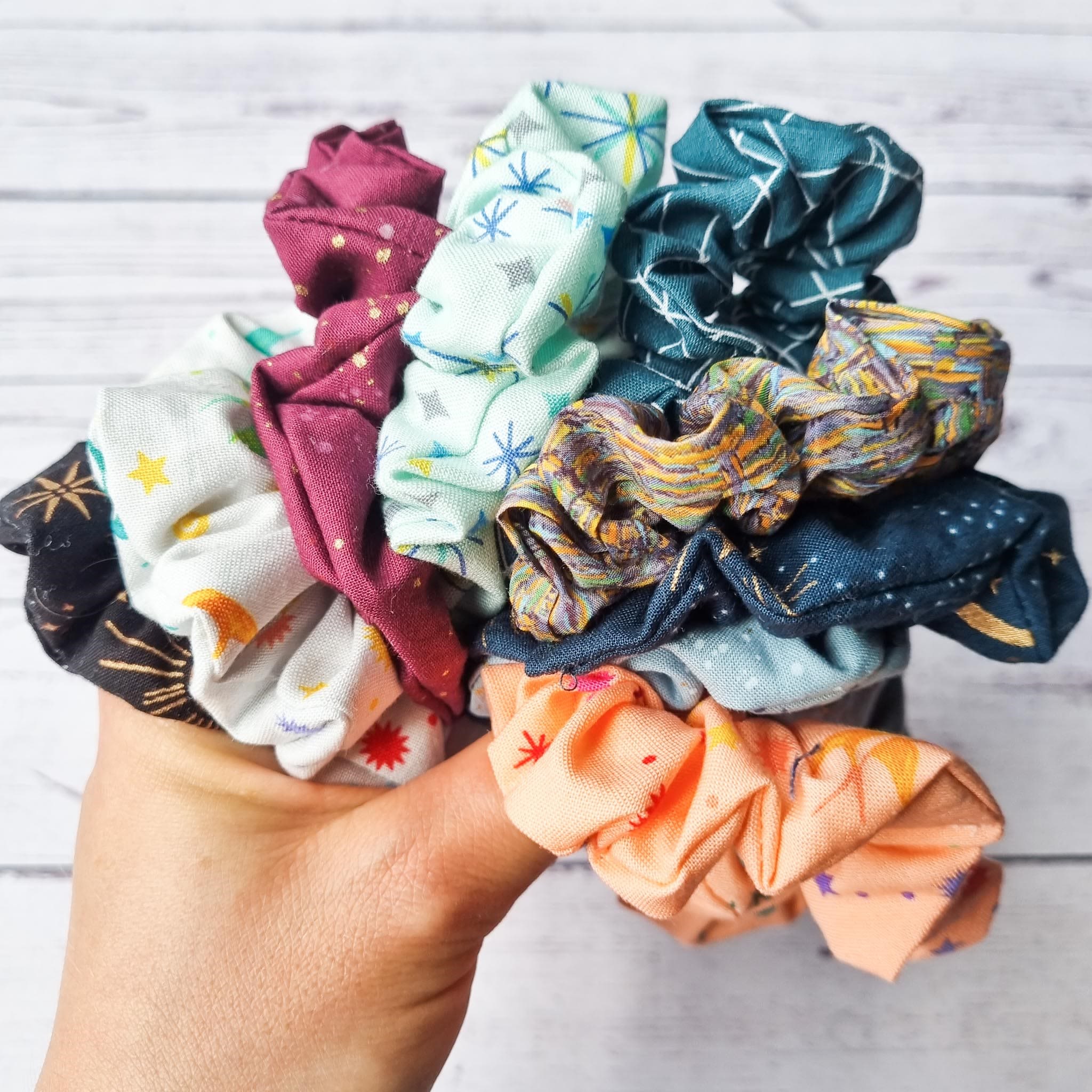
Victoria started the embRUDEry store during the pandemic, a company selling "handmade gifts and home decor for grownups" with her embroidery and sewing inspired by everything from pop culture to horror and LGBTQ+ awareness.
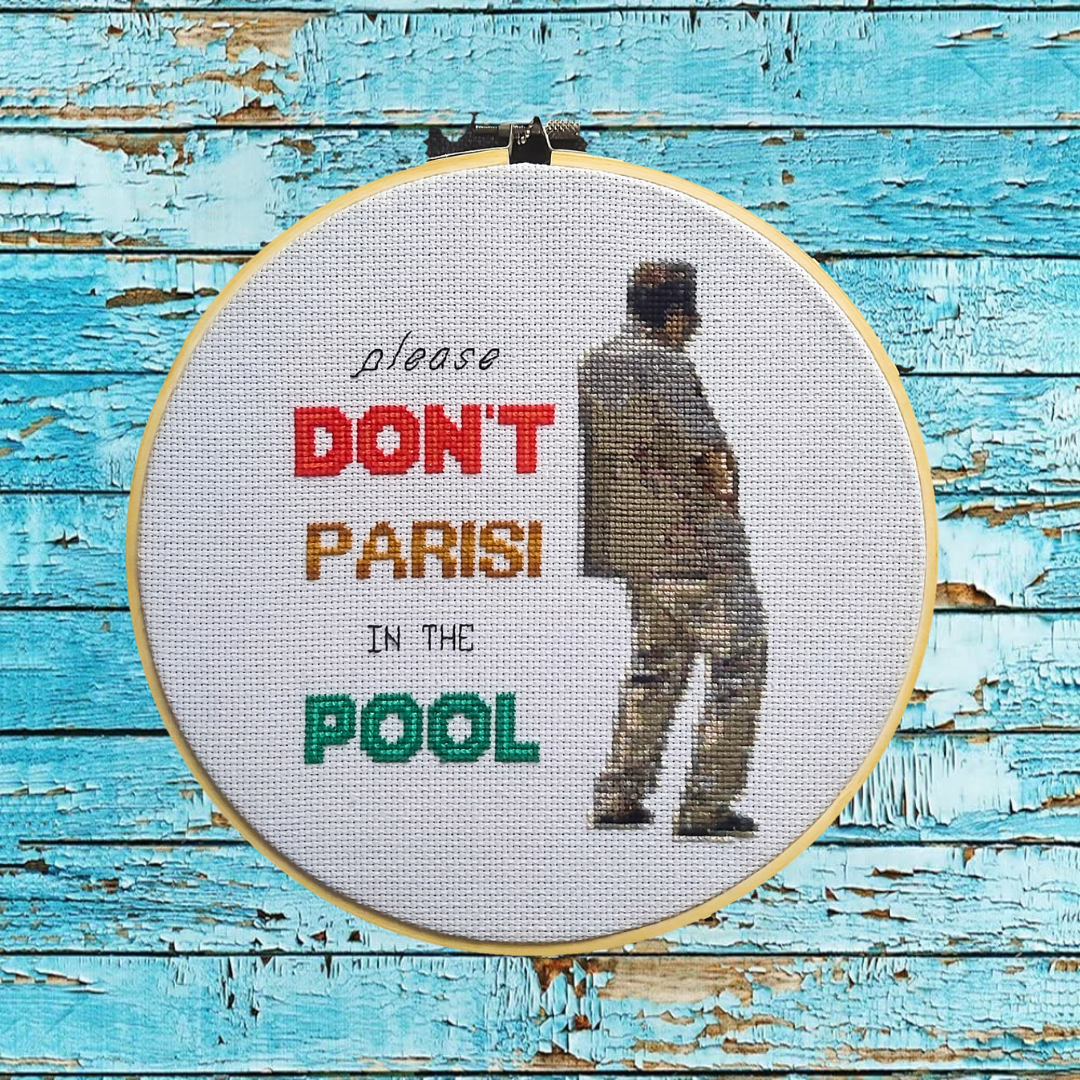
As she was shielding at home because of kidney problems, Victoria found herself at home unable to work or go out.
Like many of us, she decided to try to use lockdown to learn a new skill, having tried out painting and embroidery in the past, and bought a cheap embroidery starter kit and watched YouTube videos to try and educate herself on the art of embroidery.
"I never thought that it would actually be an essential part of my life in the not too distant future."
She found that embroidery helped her mental health and she started an Instagram page to post her creations and through doing so was introduced to a whole new community of creative people similarly stuck at home who helped each other through the highs and lows of the pandemic.
As for her diverse inspiration, as a huge horror fan she has found the horror community to be especially welcoming and supportive, with demand for gothic and Halloween-themed items all year round.
She also has a Pride range focussing on inclusivity as part of the LGBTQ+ community and with each sale she makes a donation to the LGBT Foundation.
Like Jenny, the environment is present in her business planning and all of Victoria's supplies are sourced within the UK and where possible she tries to repurpose old fabric for her work or go to charity shops when they are open for raw materials.
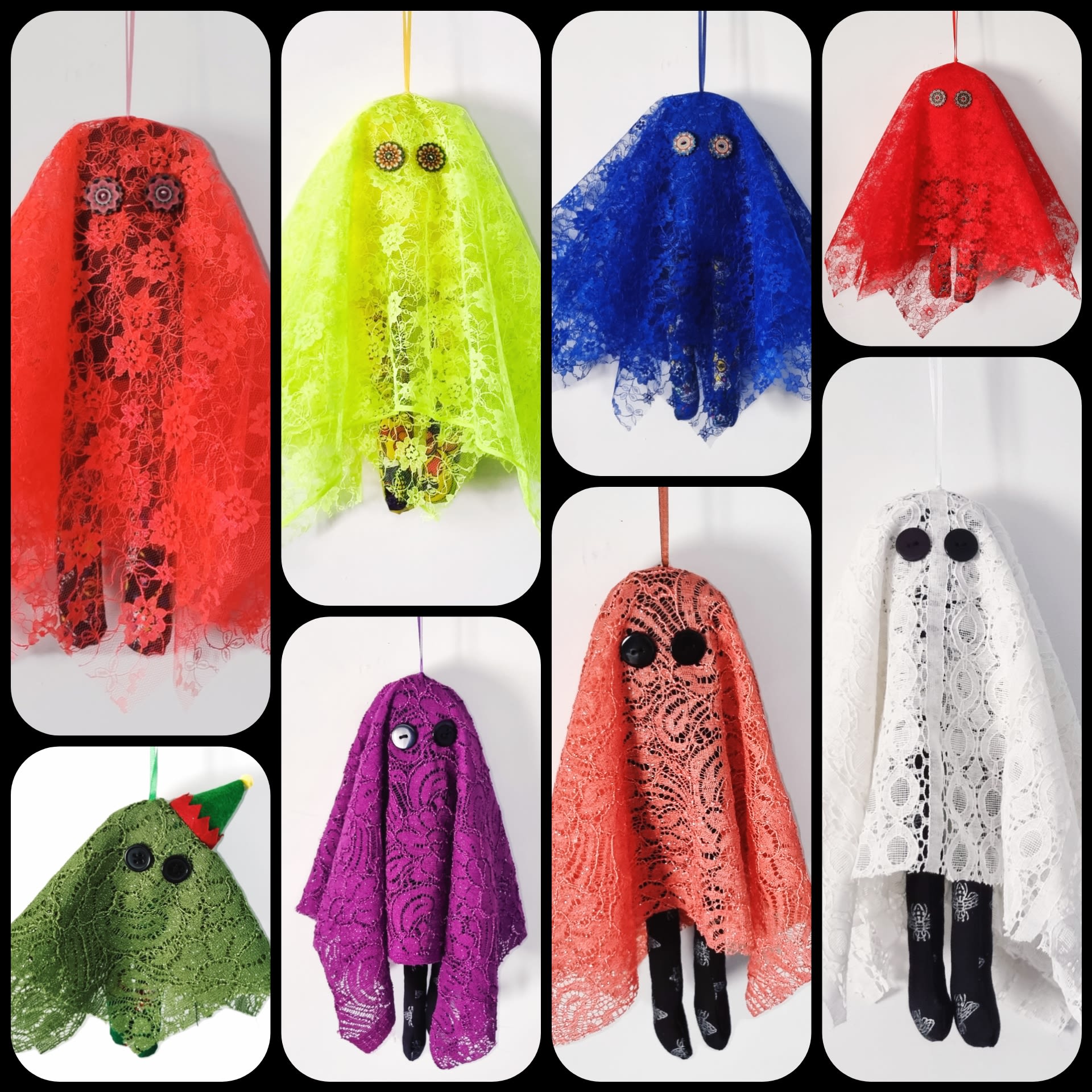
As her business has grown, she has started to create patterns for people to try stitching designs themselves which has given her the idea for the next step of her business to start home-working kits and mindful stitching and crafting workshops for mental health.
She enthused: "I would love to be able to actually get out in the community and pass on the benefits that crafting, and sewing particularly, has provided for me."
"I honestly believe that being able to focus on my crafting throughout lockdown saved my mental health."
There are many challenges involved with starting a small business but one is balancing different priorities and being able to get your offering noticed on social media.
Victoria explained: "They don't see all the hard work that goes with it; the hours spent on creating something then having to undo it all and start again, the juggling of small spaces, being a parent or carer, website design, accounting, tax, customer service, tears of frustration, tears of joy... and the bane of my life: social media.
"It takes a lot of work to push a business forward and be noticed today, and social media takes a lot more time and energy than people think; that 30 second reel someone created probably took 3 hours to edit and put together!"
"For me, my embroidery and sewing really helped me to feel like I was a part of a community even when we were all so far away from each other, and now I can't imagine not being a part of that."
For Victoria, another challenge she had to face was getting the confidence to set up a craft business in the first place, which was a common theme amongst the women I spoke with about their small businesses.
She said: "Anyone who does anything creative will understand that there is the 'creative curse' - you never think your work is good enough no matter how many people tell you otherwise!
"So for anyone setting up a craft business, this is a massive hurdle to overcome."
She seems to have overcome that though, winning a #QueenOf award for Fabric Art on Twitter, becoming part of a My Helpful Hints Small Business Directory and her craft business is now one year old and she has celebrated by relaunching her website with exclusive items for sale, a new blog, free tutorials and patterns.
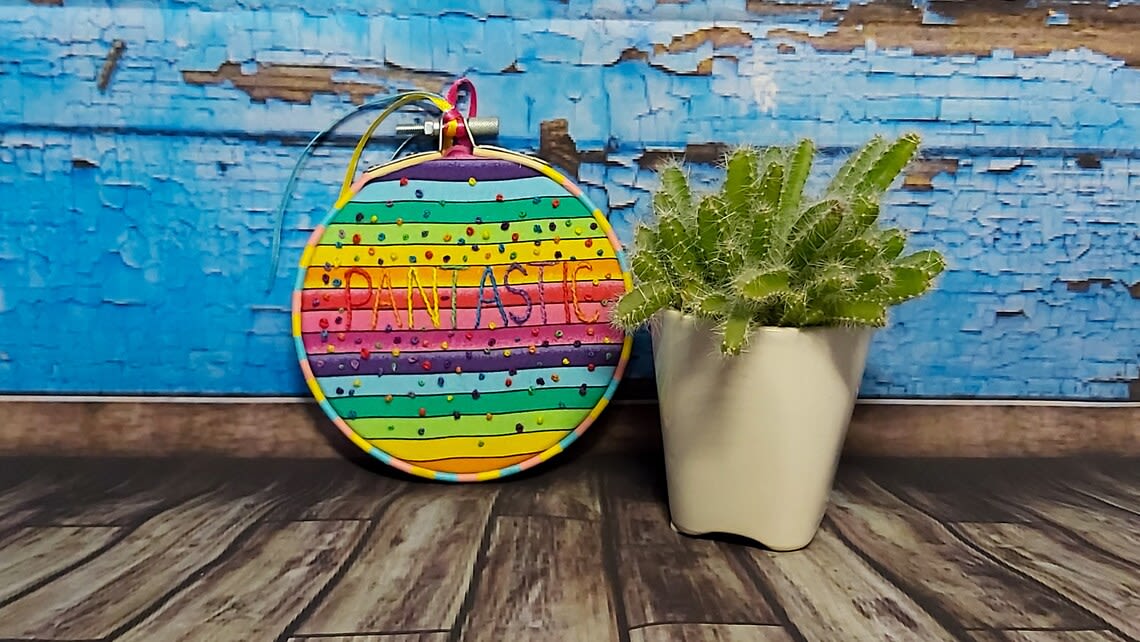
Former Rolls-Royce engineer, Sarah Hodgkinson, launched her own business during the pandemic in which she hosts creative workshops and produces home craft kits for beginners and enthusiasts alike.
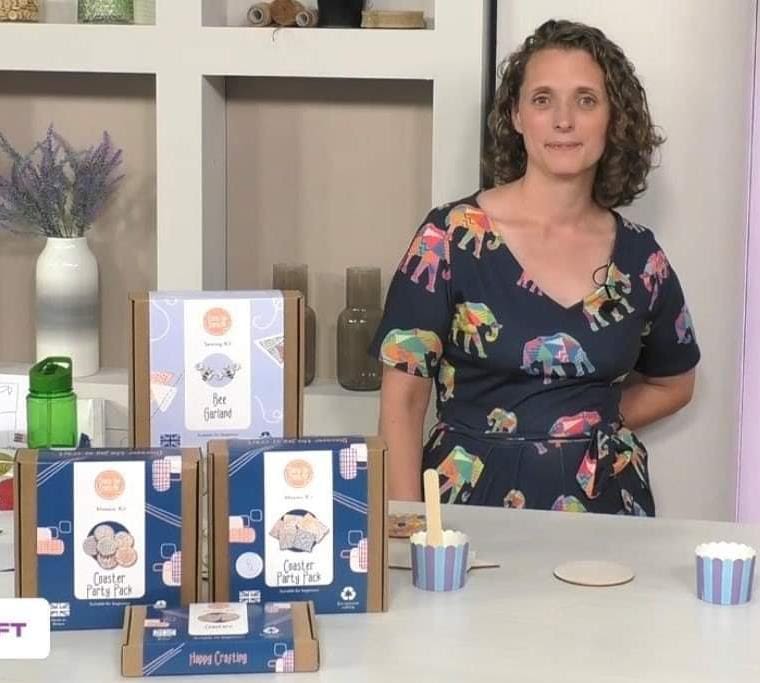
Before the Covid pandemic struck, Sarah had spent 14 years in Engineering in the aerospace industry which was then hit with redundancies.
"When considering what my next steps should be I wanted to give something a try that would mean I could do what I loved whilst making a living."
Sarah had a choice to make and told SWL: "For me it felt like the right time to take voluntary redundancy and give something a different a go."
"Whilst I didn't have plans of a craft business beforehand it was a fairly easy decision that its what I should do.
"This way I could combine what I love with creating a business."
"Craft has always been my way to unwind."
Her Granny taught her to knit as a young girl and the passion for crafting stuck from there.
Now Sarah sells a range of eco-conscious craft kits covering mosaics, needle felting and sewing for beginners with detailed instructions and high quality materials wholesale and from her website.
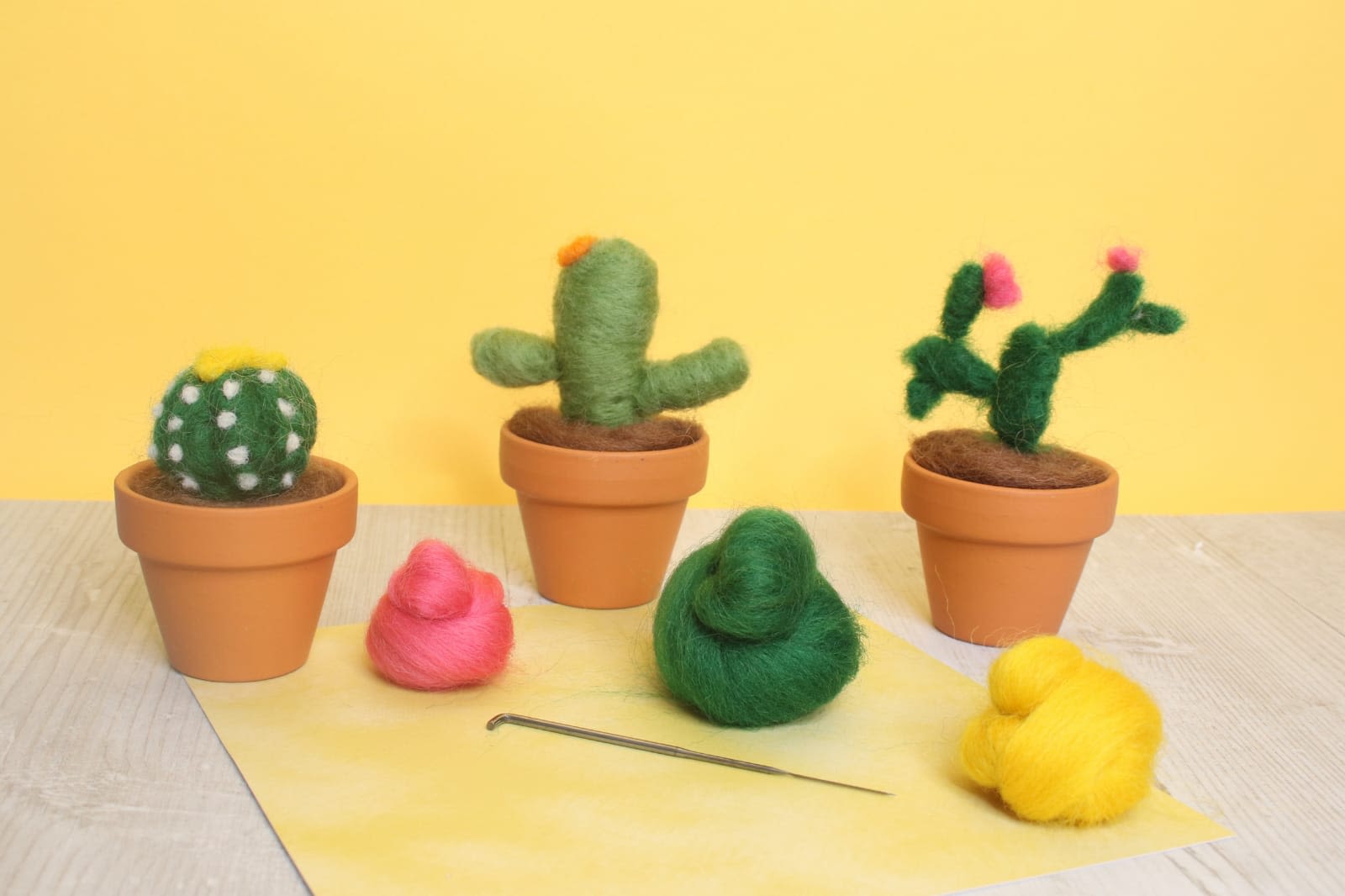
Sarah also ran a series of outdoor workshops last summer and initially wanted teaching to be the primary focus of her business.
"Getting to spend time with like minded people has been fantastic."
However, Covid limitations on gatherings and successive lockdowns made that focus much more difficult so instead she decided to launch her take home kits which have been a great success over the winter in particular.
Her company had its first birthday last month and Sarah has found she has a far better work life balance with her crafting business plus the satisfaction every time one of her kits sells.
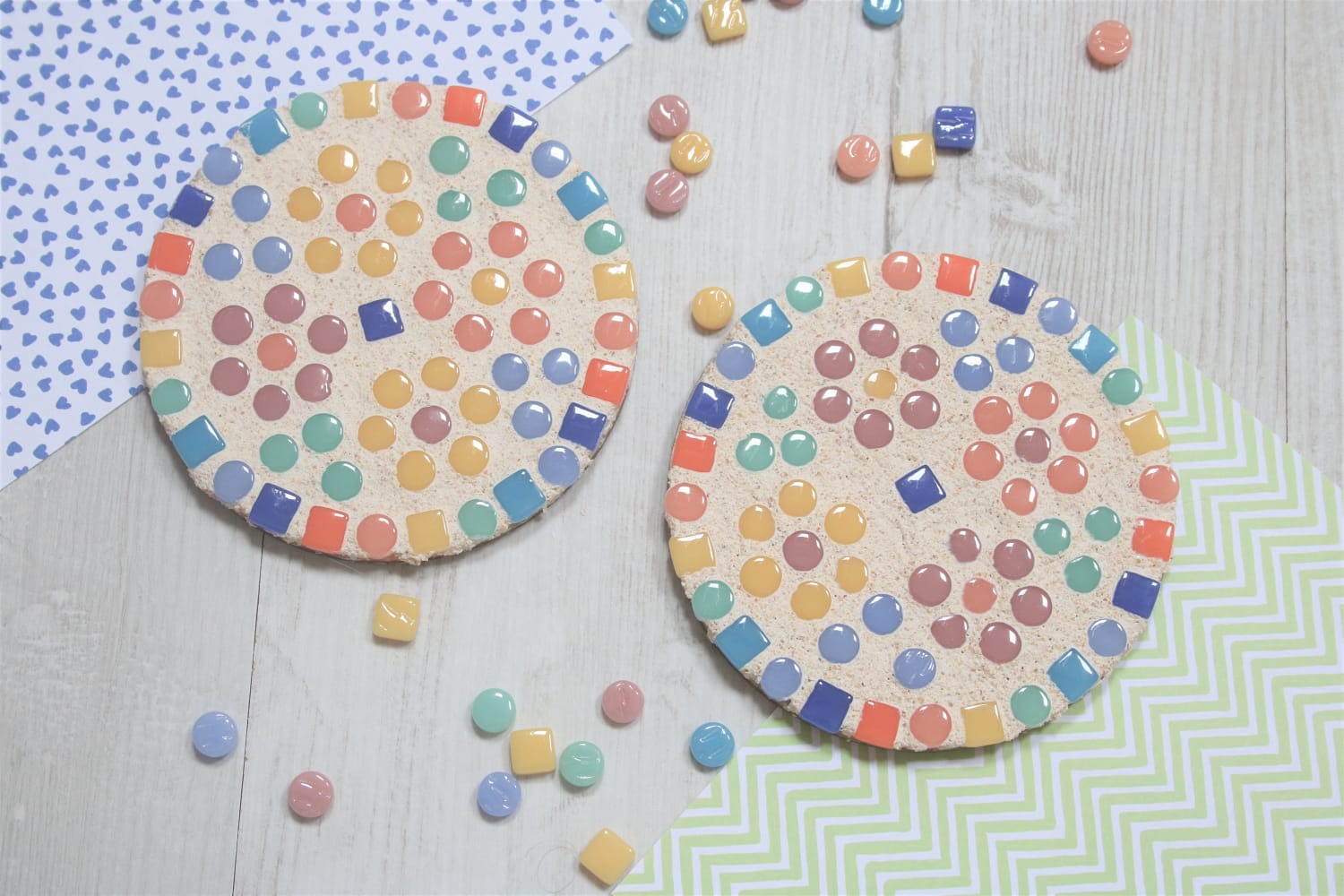
Sacha Beee Bespoke Sustainable Accessories
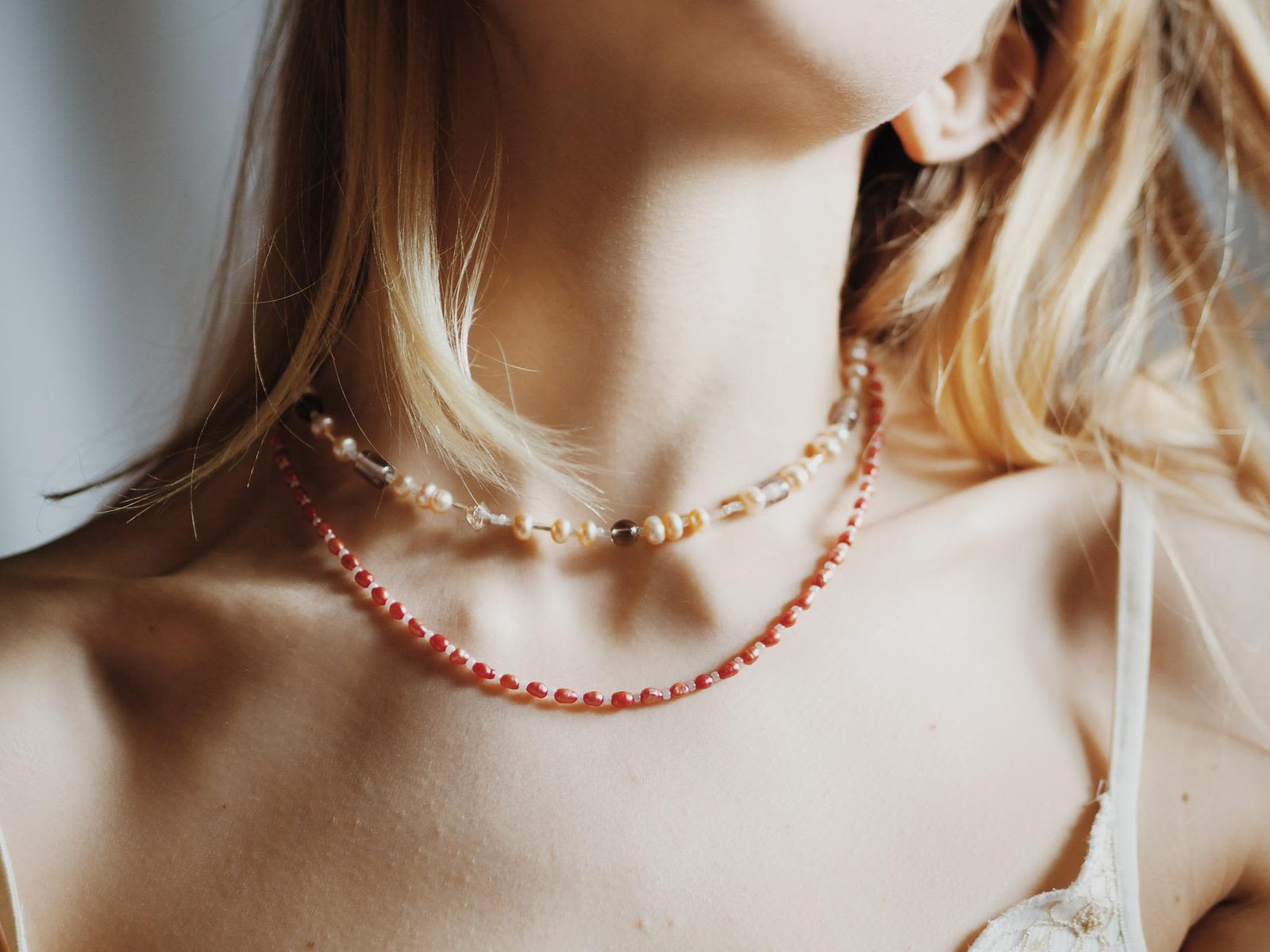
Sacha Beee went from making dangly earrings from leftover threads from her Grandmother's sewing box, to a successful sustainable accessory business after university.

Sacha started her business back in 2018 to channel her inner creativity and learn new skills.
She mostly creates beaded jewellery and recycled candles and told SWL: "The whole purpose of my business is to use materials that we already have to create new pieces."
"Over lockdown I was really given the time to focus on my business and reconnect with things that I had loved doing when I was younger."
For Sacha over lockdown she could not source her beads, wire and other materials for her jewellery from charity shops and her typical sources, so she started a scheme called BeadCycle where people could send her their old jewellery in exchange for a voucher and she could remake it.
She explained: "This was a perfect solution as it connected me with my customers and always was in line with my businesses’ values of sustainability."
"I love to show that just because something is second hand, it isn't second best."
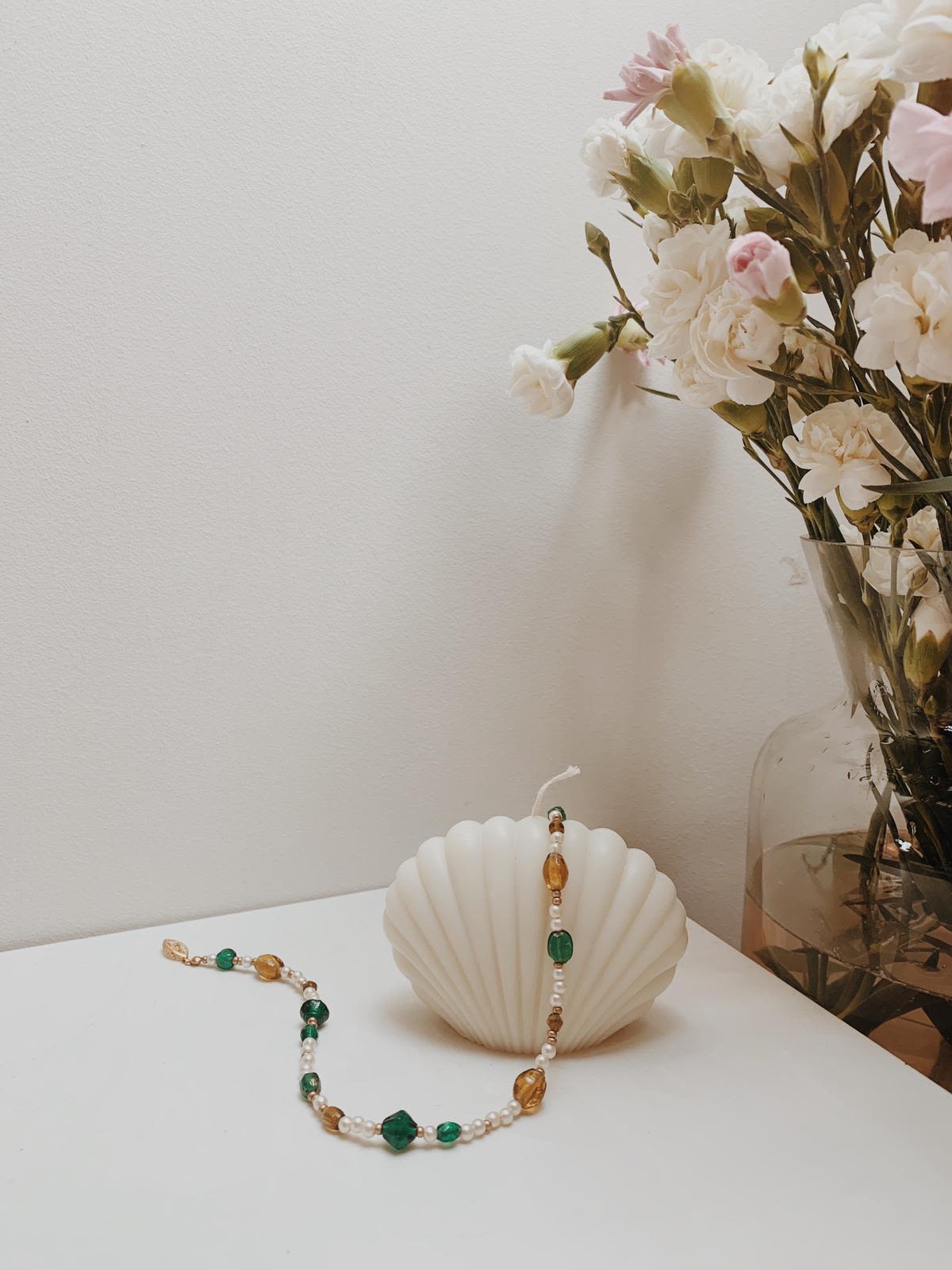
Sacha mentioned several personal benefits from her business, one of which is the peace of being able to switch off from technology and sit down and focus on the creativity of designing a new collection.
Another has been the skills she's learned and developed; from marketing and photography to sales, finance and more.
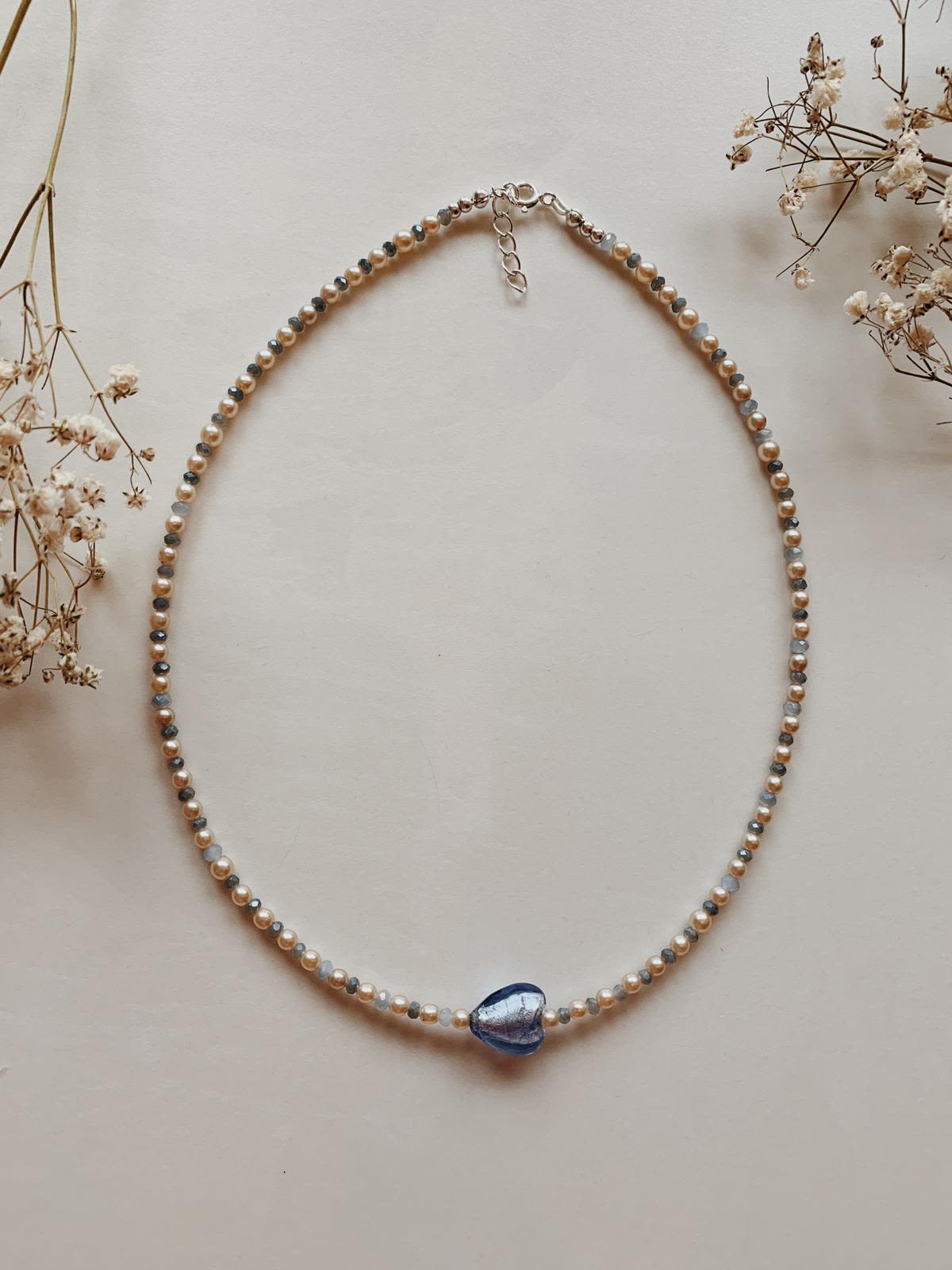
A specific challenge that Sacha has faced since starting her business is tackling competing expectations with fast fashion: "I find that so many high street brands create cheap and tacky versions of what I create, and sell them for such low prices making my prices seem unreasonable.
"I think for a lot of small businesses this is an issue."
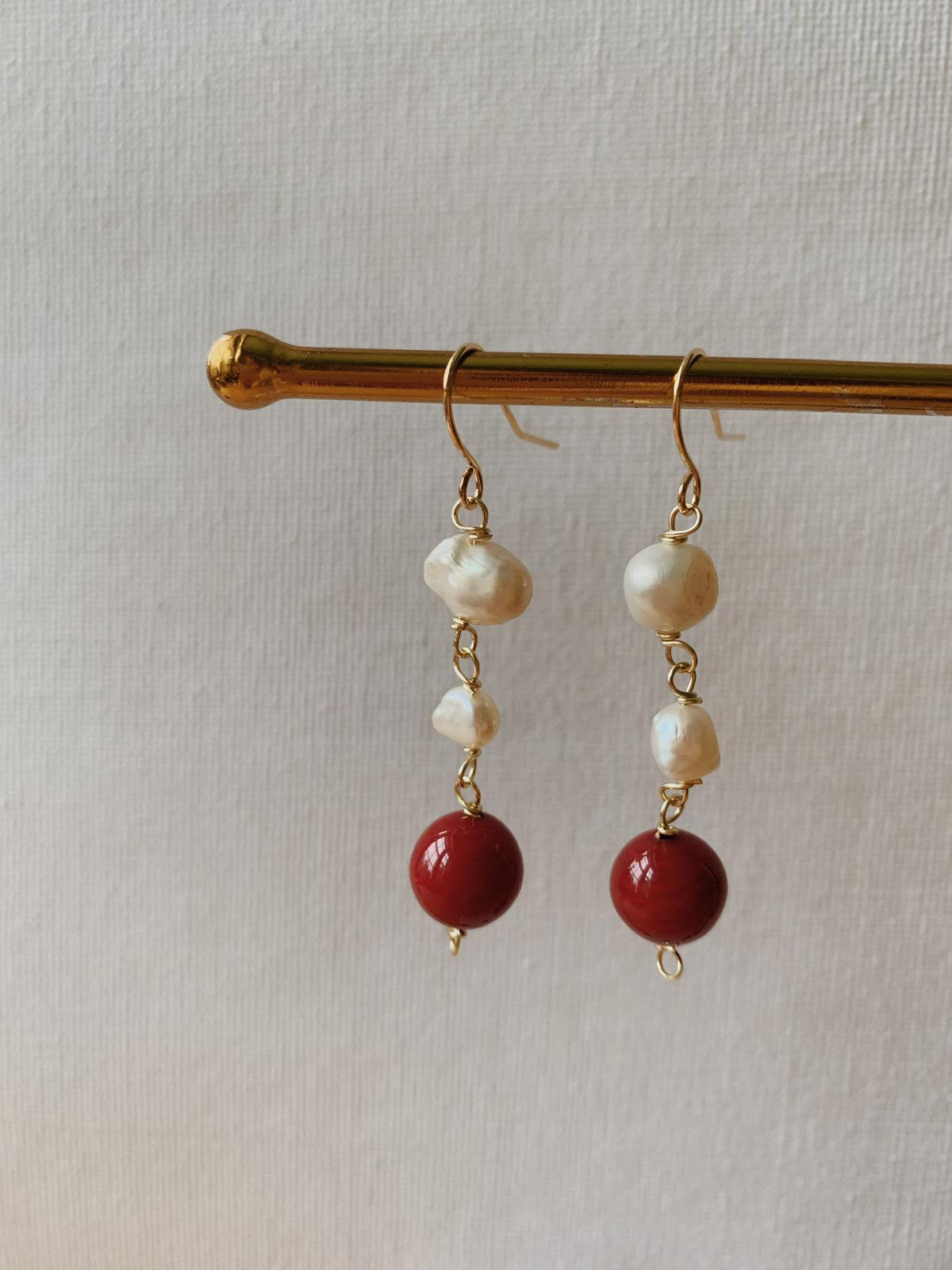
Paula Milner has been in the crafting business for seven years but has experienced a boom in demand for online workshops over the pandemic.
Keen on crafting from a young age, Paula later developed her passion into a business with predominantly face-to-face workshops in her studio in the Northamptonshire countryside.
She was on maternity leave when the pandemic hit in March 2020 and suddenly realised she needed to think of a new way to move her business forward as gatherings, for crafting or otherwise, were not going to be a reality for some time.
While she was at home, she found she wanted to get crafting even more to have something to do with her family and distract her from "the worries of the world", something that was echoed across the country.
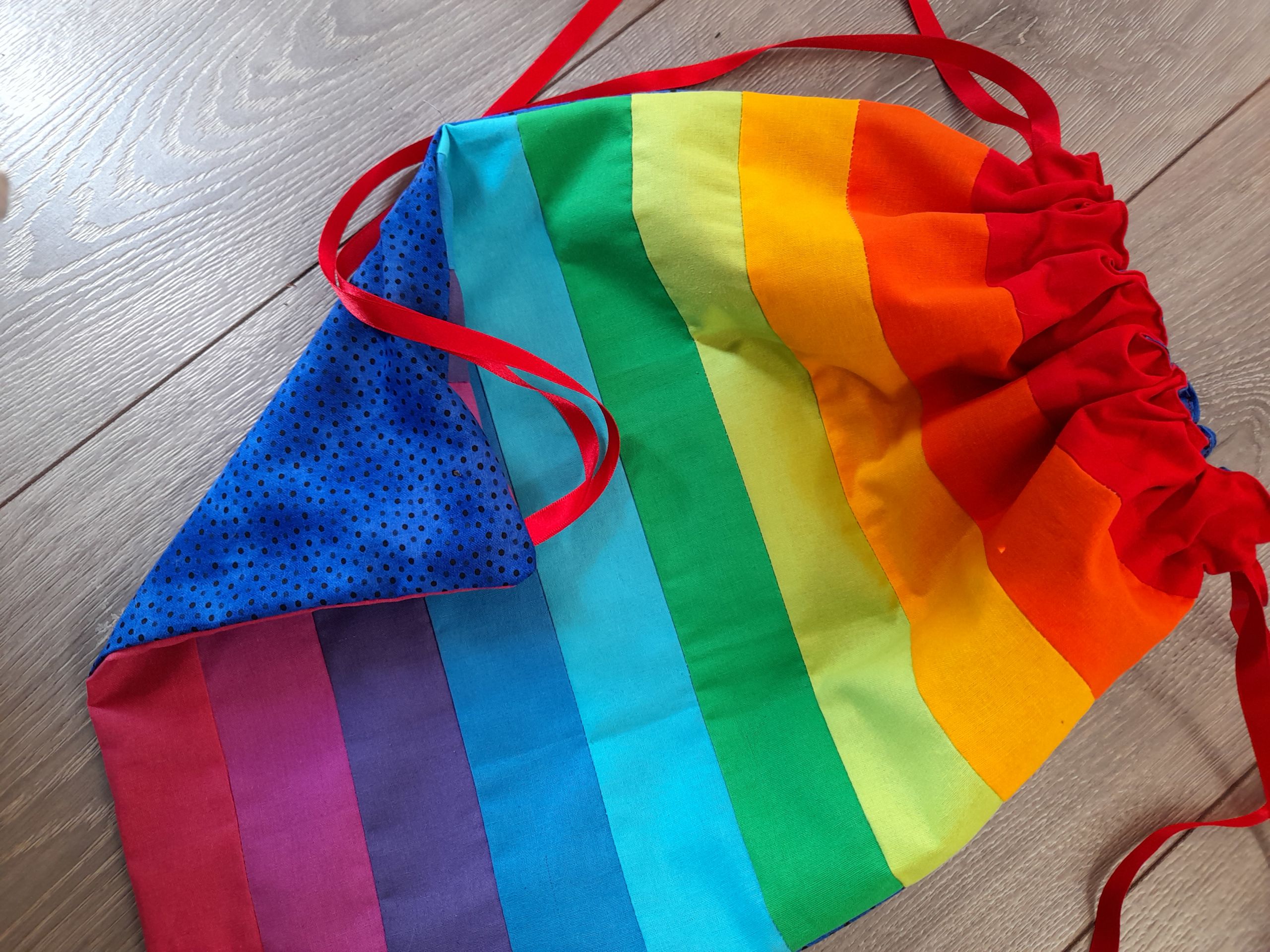
Paula told SWL: "Craft is rewarding, it is comforting, it is sometimes challenging - but, in the best way.
"I love how it can take you to another 'place' - you can learn new skills, you can engage with fellow crafters, make things for people, your home, yourself, or just to try something new."
"Craft is my business, my hobby, my life."
She started to work with Hobbycraft, the UK's largest arts and crafts retailer, on their online workshop offerings as well as the Handmade Festival in turning their classes virtual where previously she had taught 300 people together in marquees across one weekend.
Paula was pleasantly surprised how easily you could teach crafting skills online and how many more people were able to attend the workshops from around the country who otherwise would not have been able to.
In the first lockdown, she also looked into upcycling to turn things she already had at home which ordinarily would have gone in the bin, into a beautiful craft project.
This led her to have a brief feature on Kirstie Allsopp's Channel 4 Programme Keep Crafting and Carry On and colloborate with Heinz to come up with craft projects to reuse cans into crafty creations.
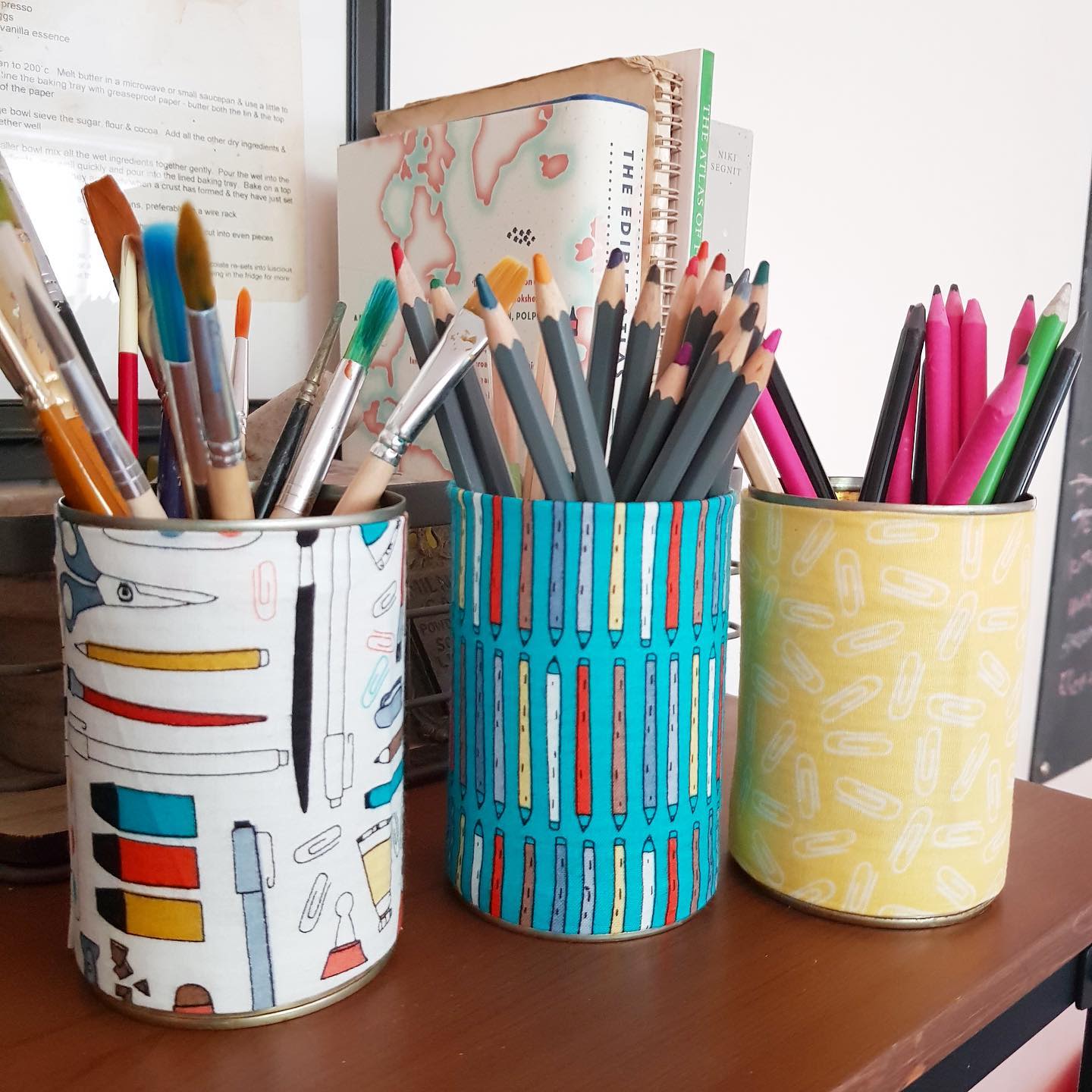
"I wanted to make my passion, my business. I dreamt of a 'flexible' life in that I could work, but allow myself to have a family."
Being keen on crafting seems to hinge on community and confidence, as Paula summed up: "Primarily my business is about inspiring people to get creative - whether that be through teaching workshops, offering tutorials and ideas, or simply giving people the confidence to try new skills."
Getting the balance right with keeping every part of her business going, looking after her family and everything else can be tricky, as we have seen with other small business owners we interviewed, but Paula is very grateful for where she is: "I feel extremely lucky to be a Mummy to my two young boys, and (try to!) fit my work around them.
"My family are probably the only thing that comes before craft."
"If you had asked me 12 months ago would I be where I am now, I would not have believed you!"
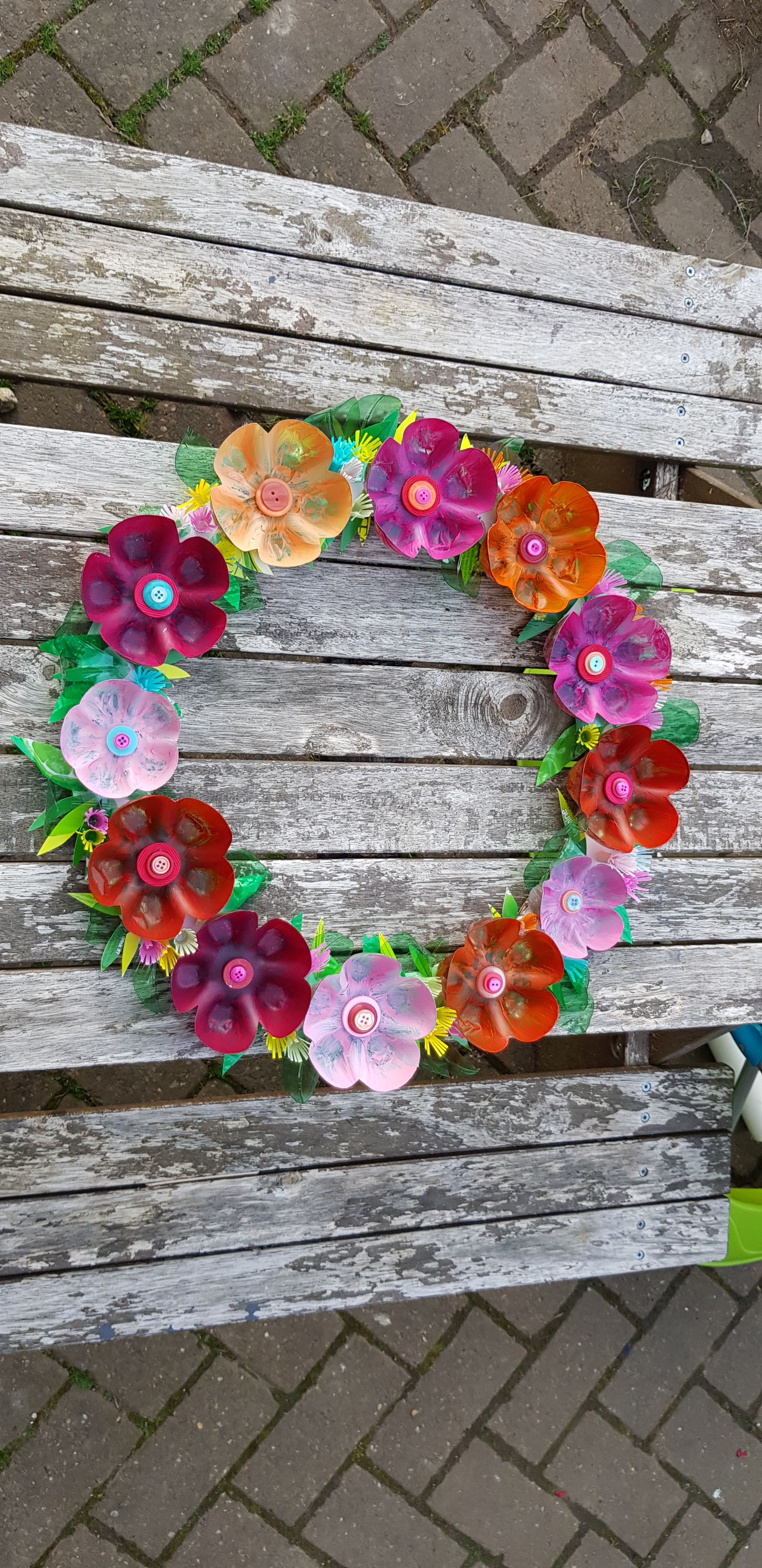
Photo credits:
Ella Sagar
Amy Snell
Jenny Kershaw
The Crafty Lass
Mark Lord Photography
Sarah Hodgkinson
Sacha Beee
